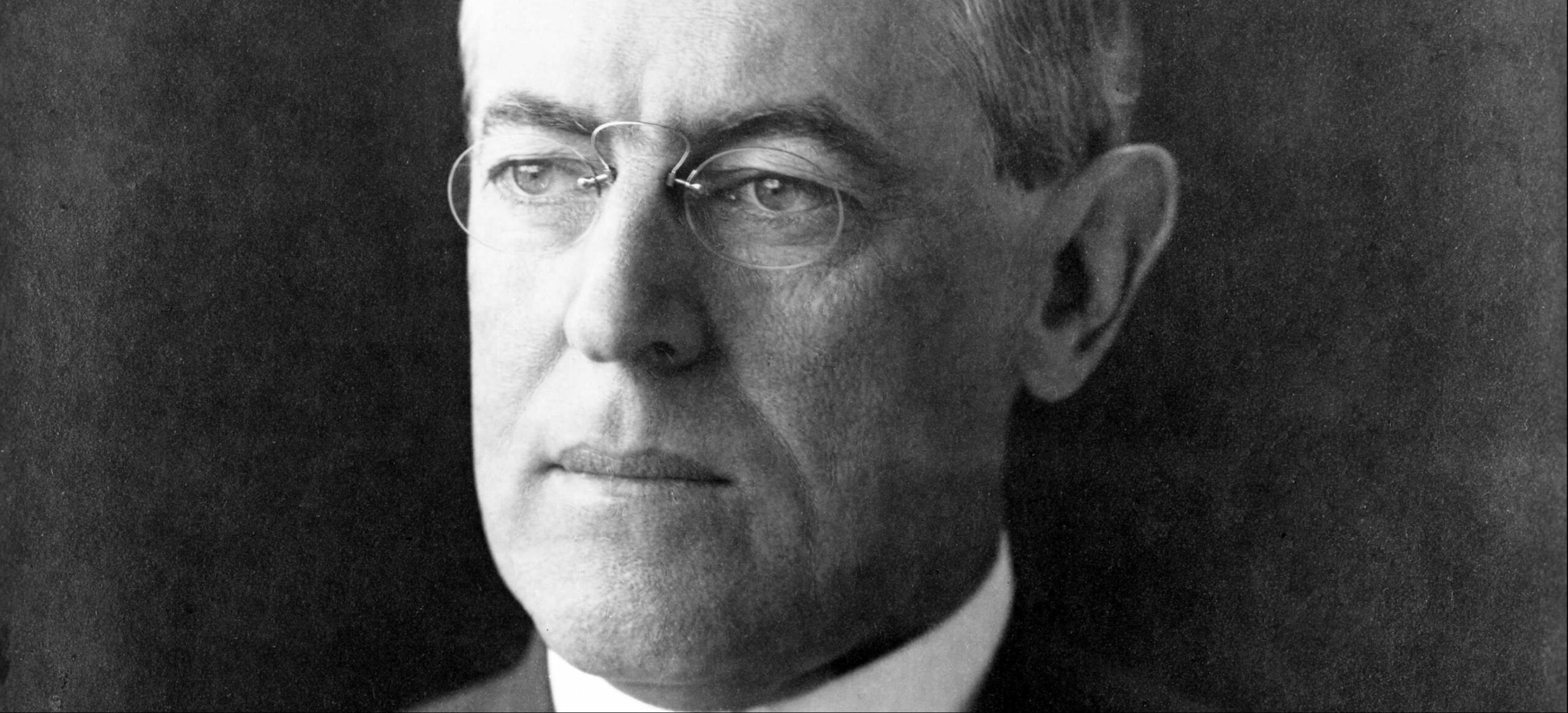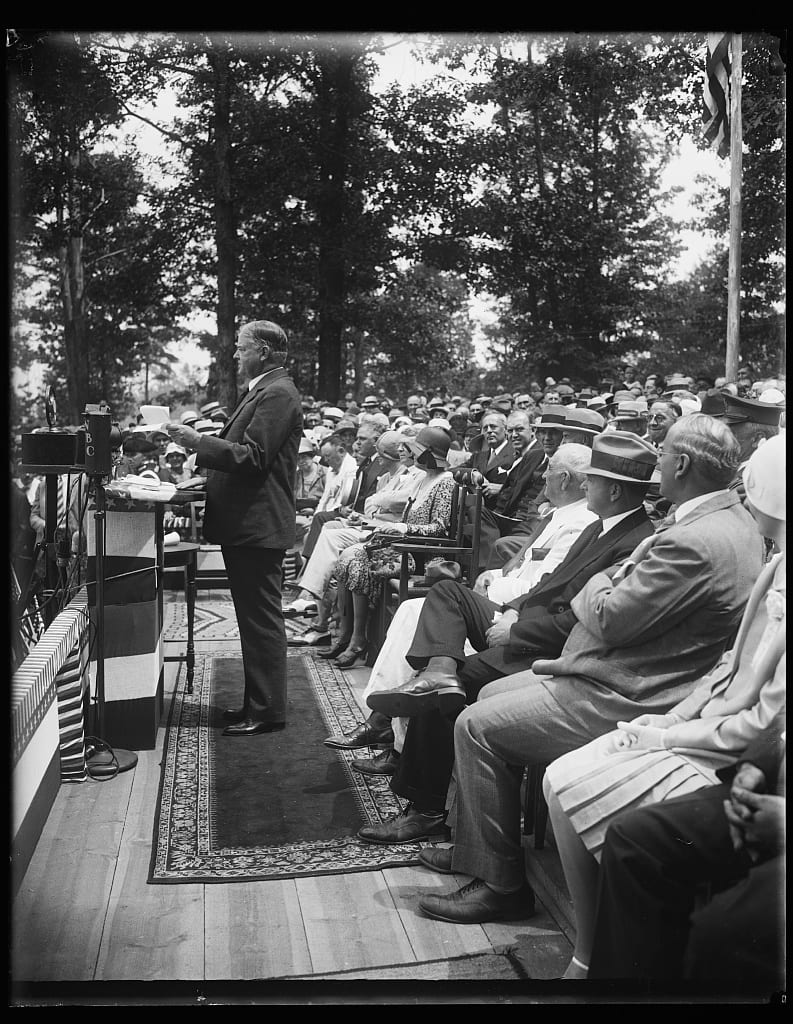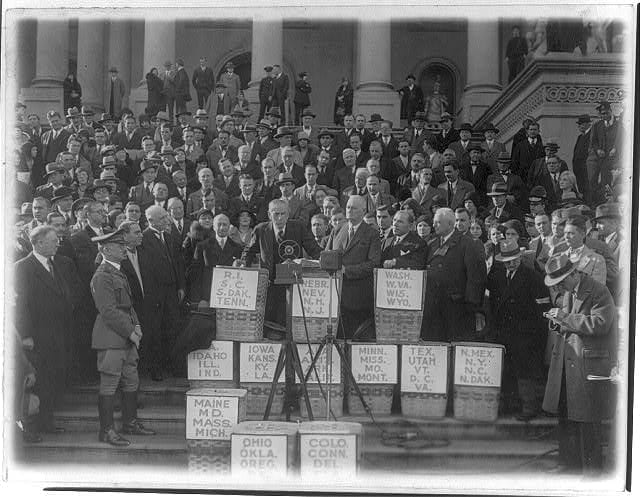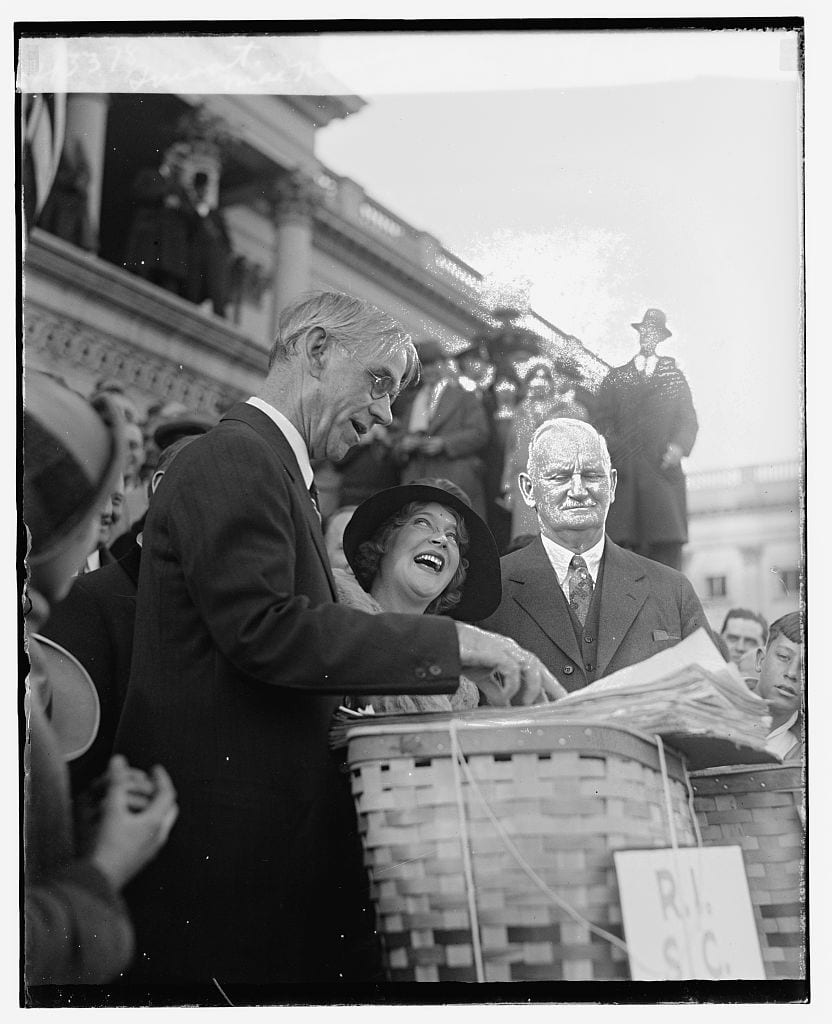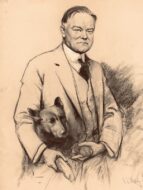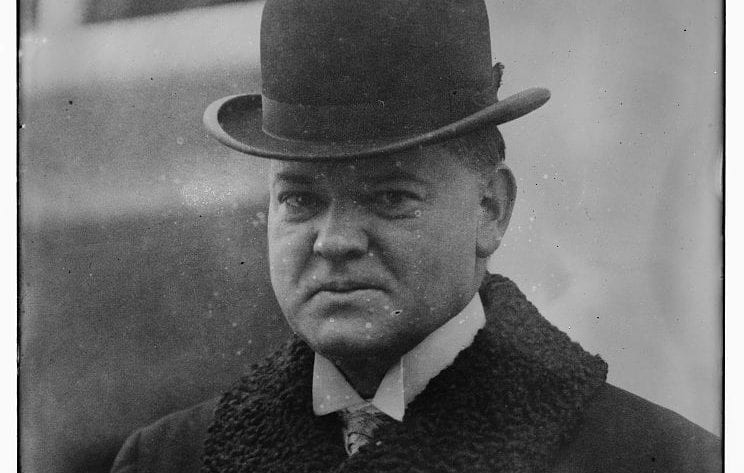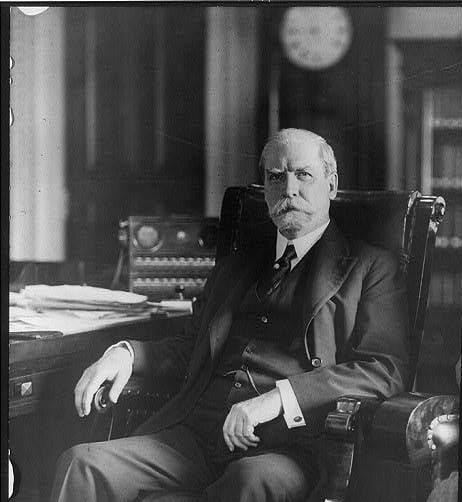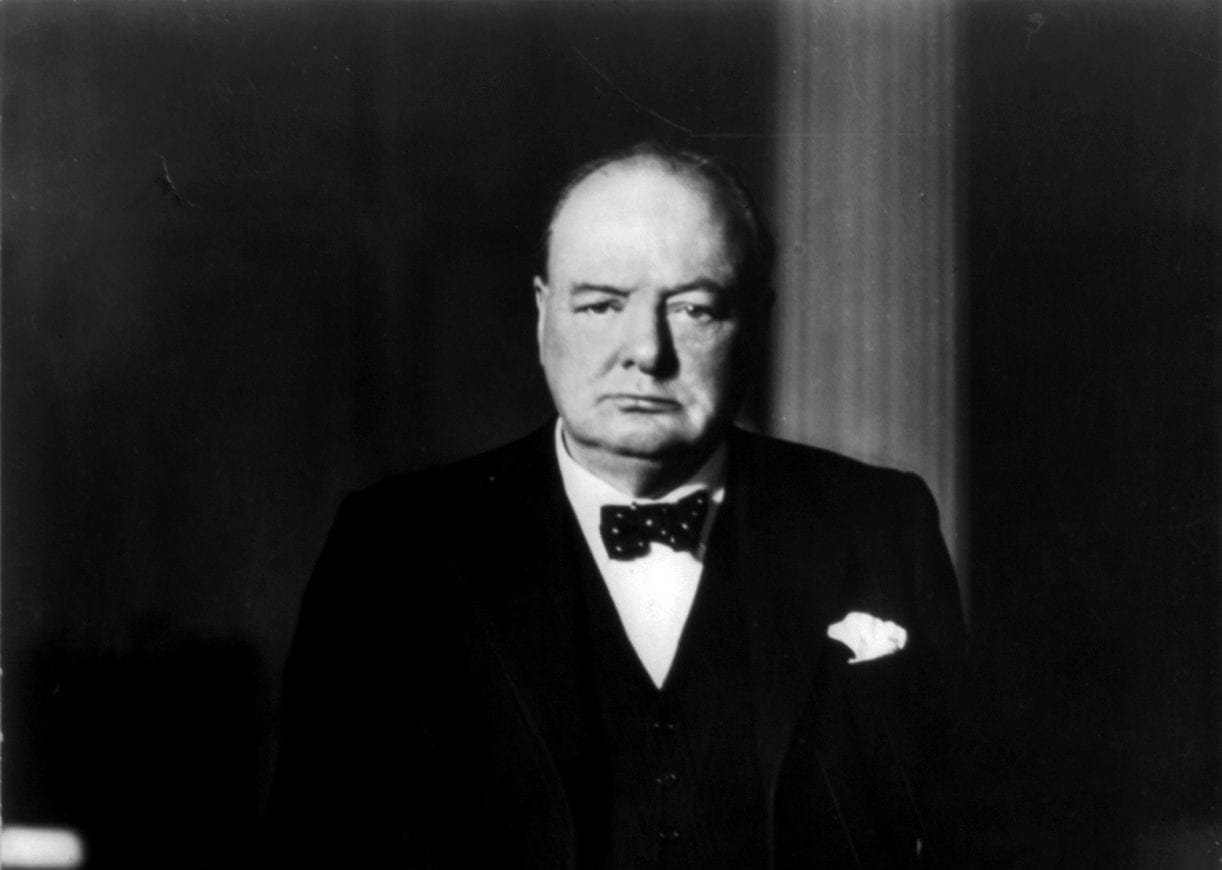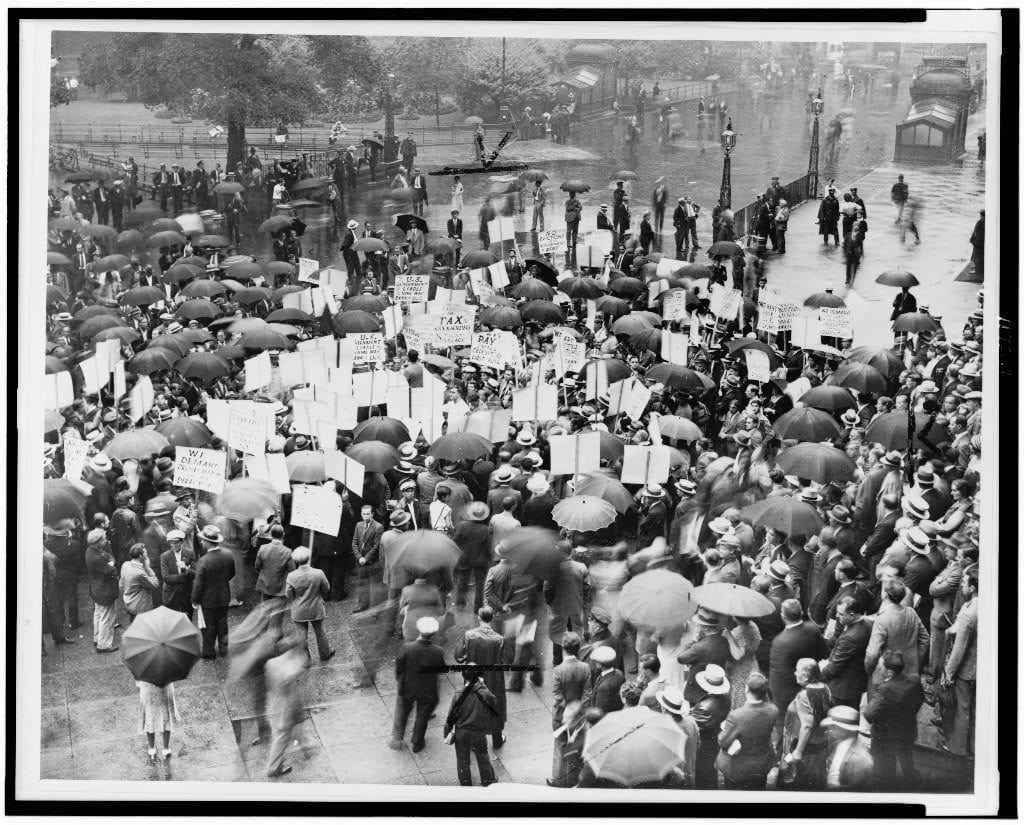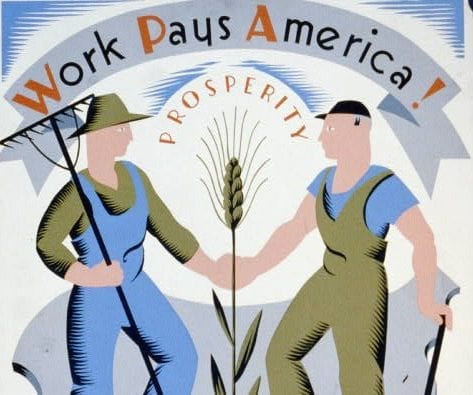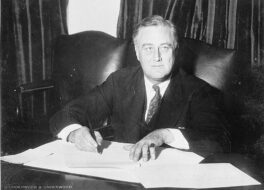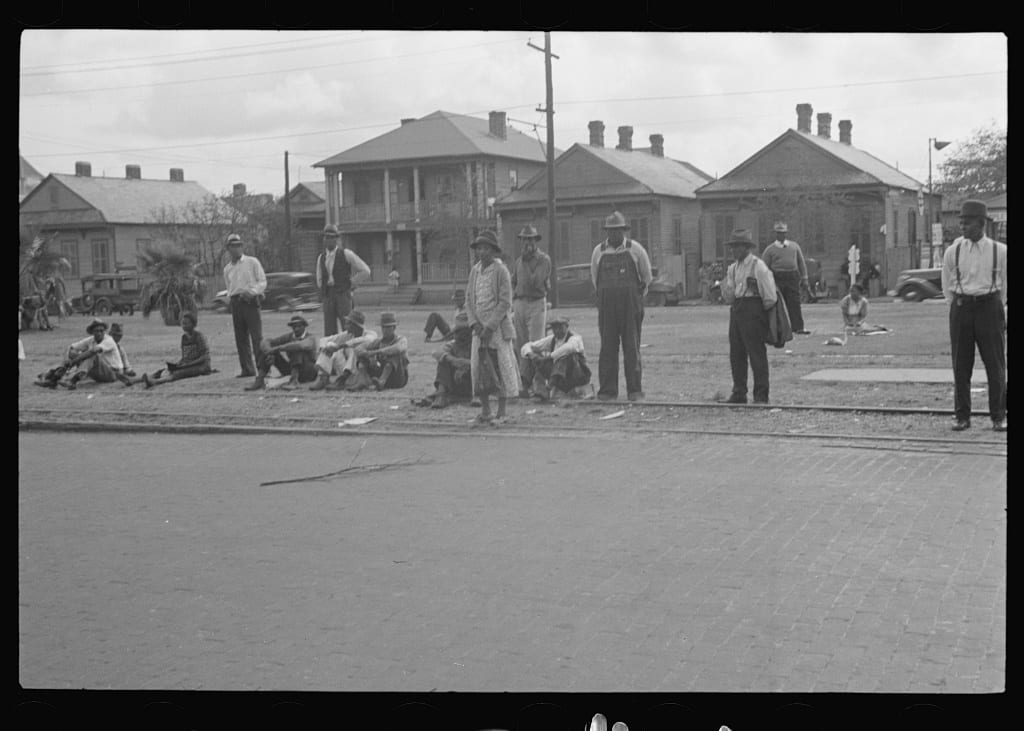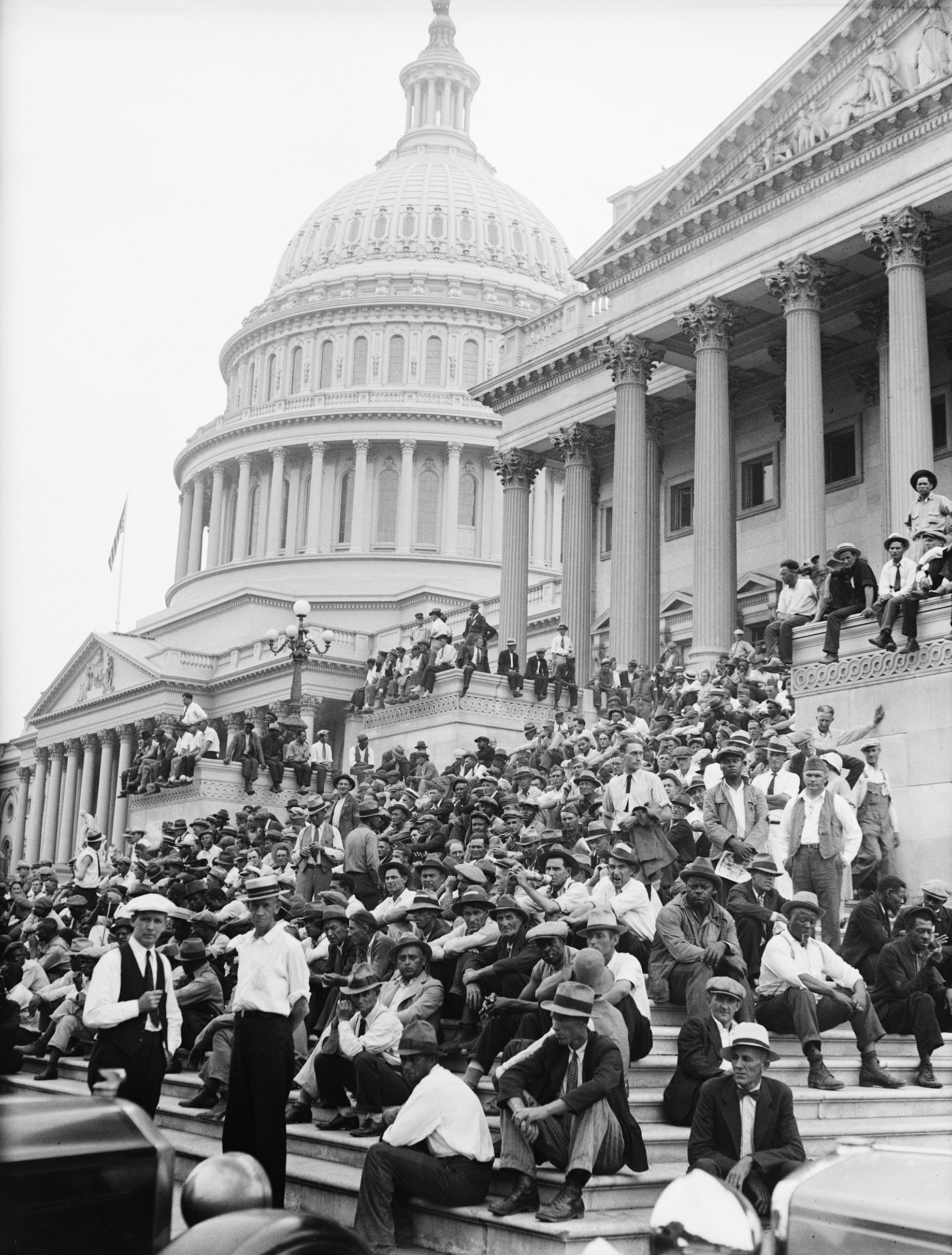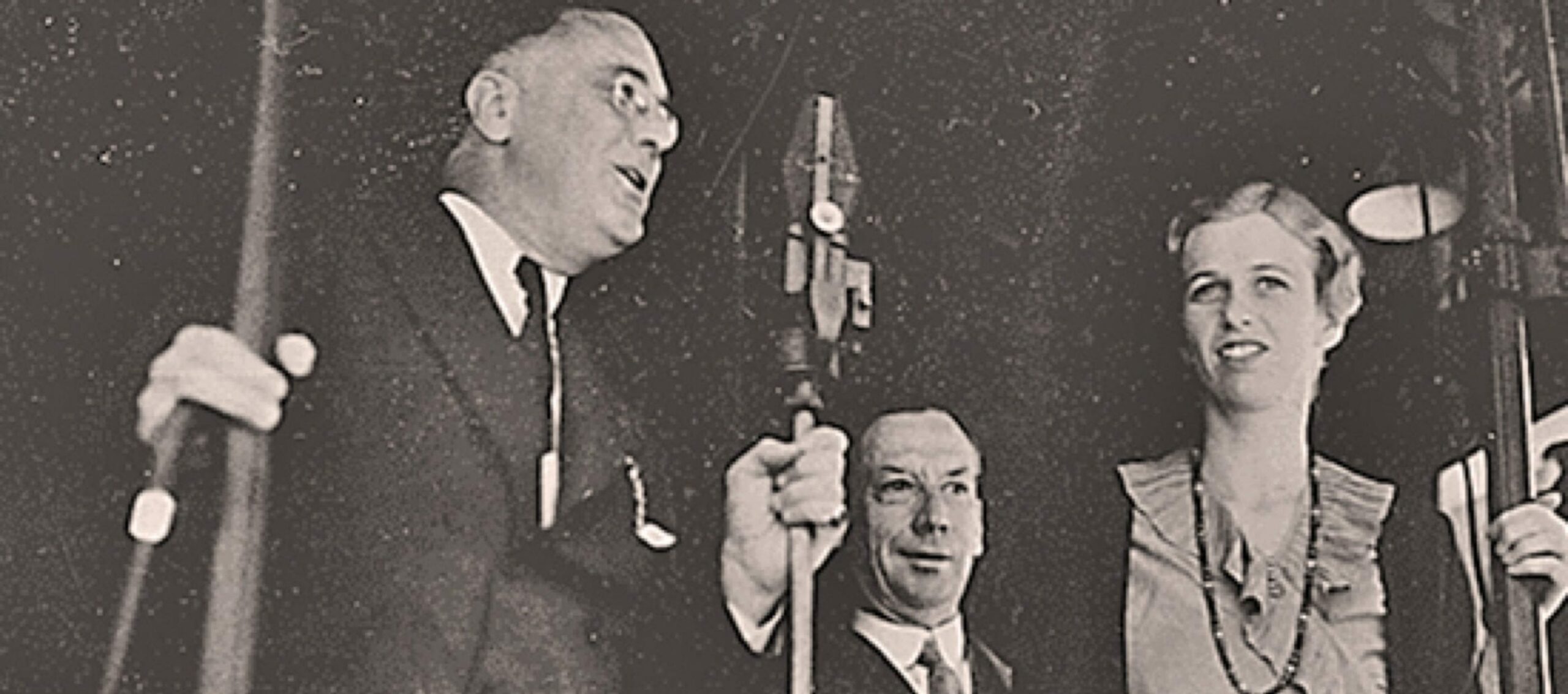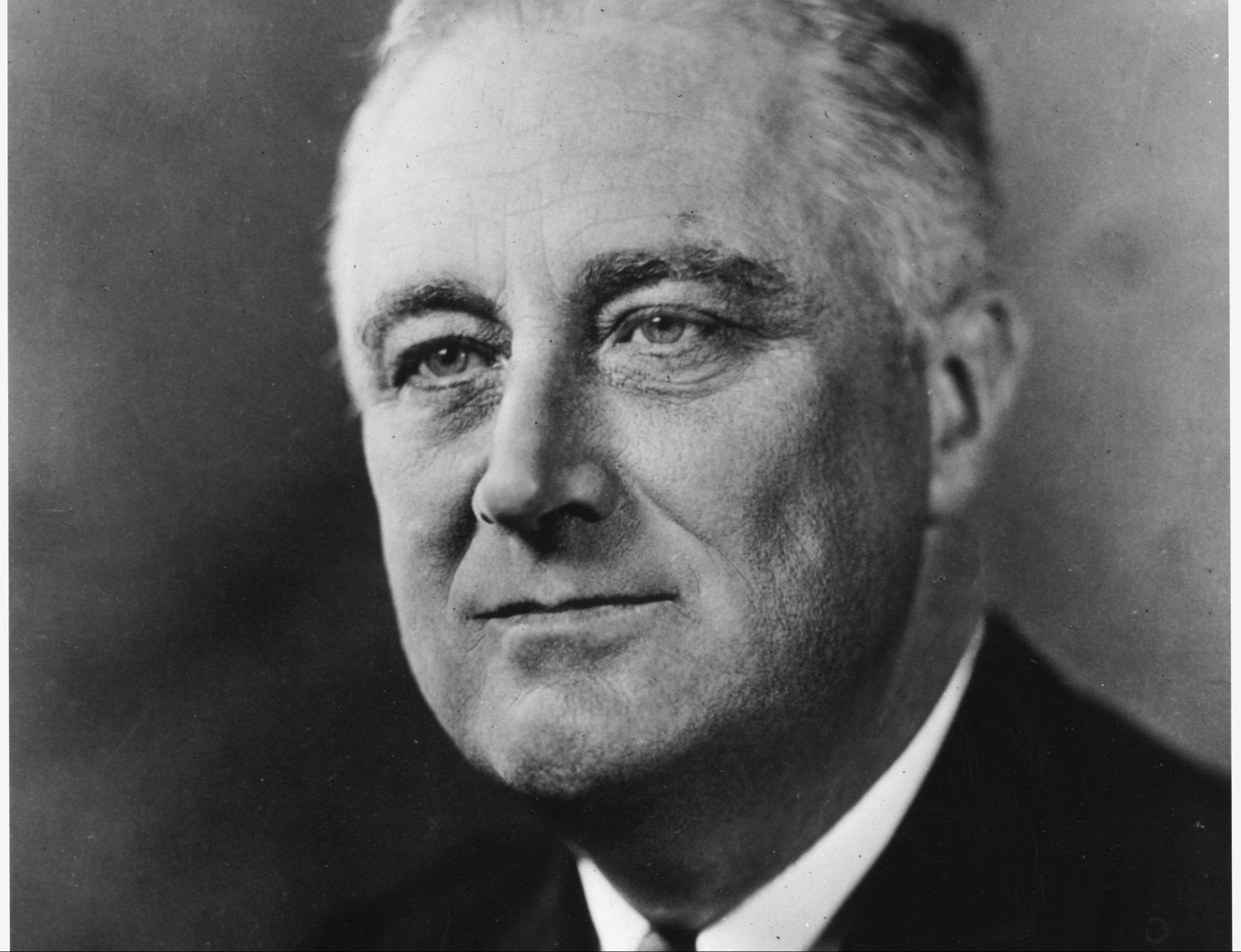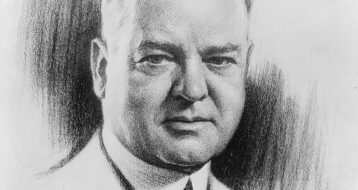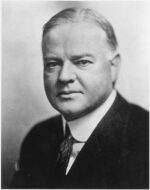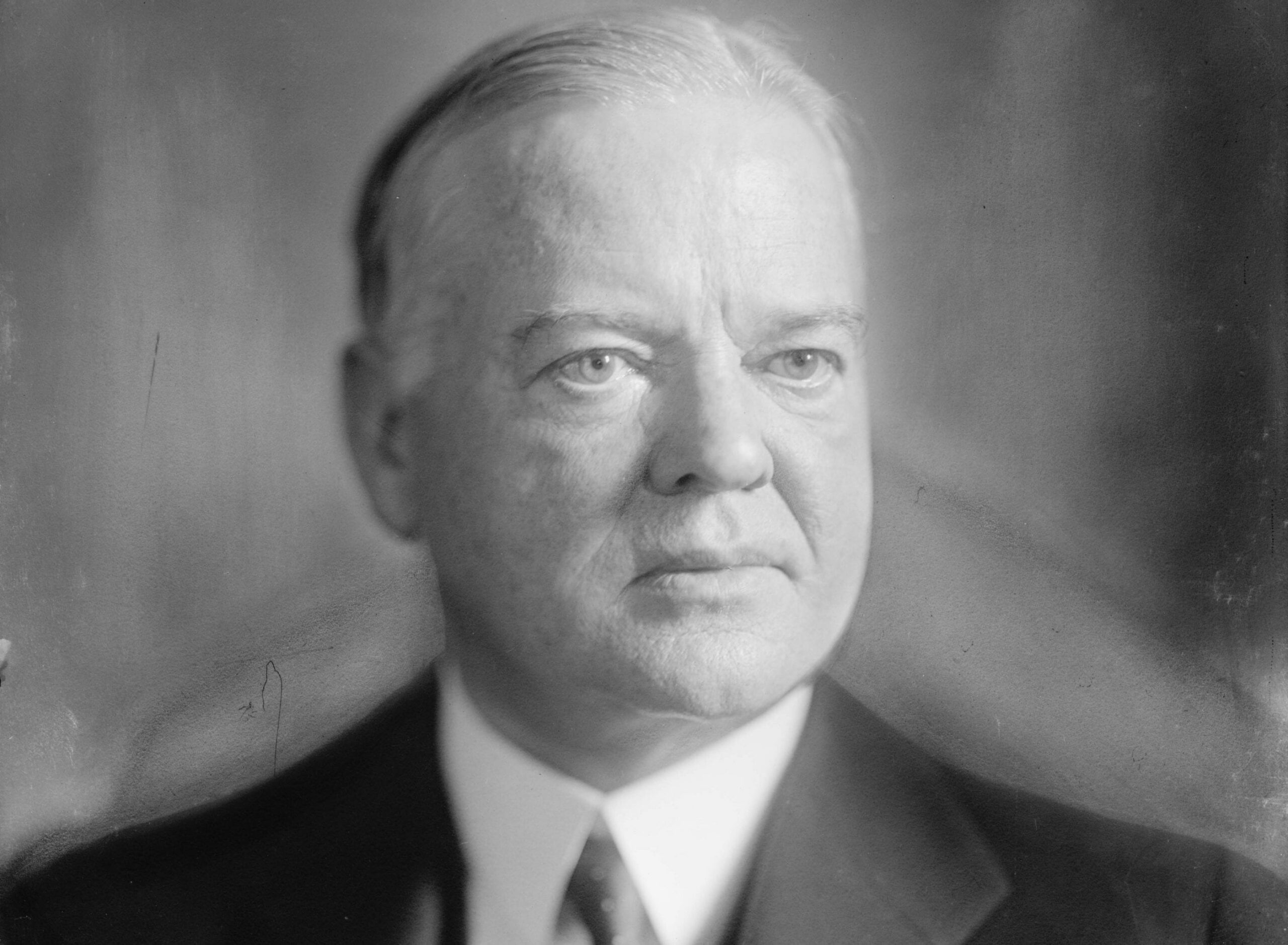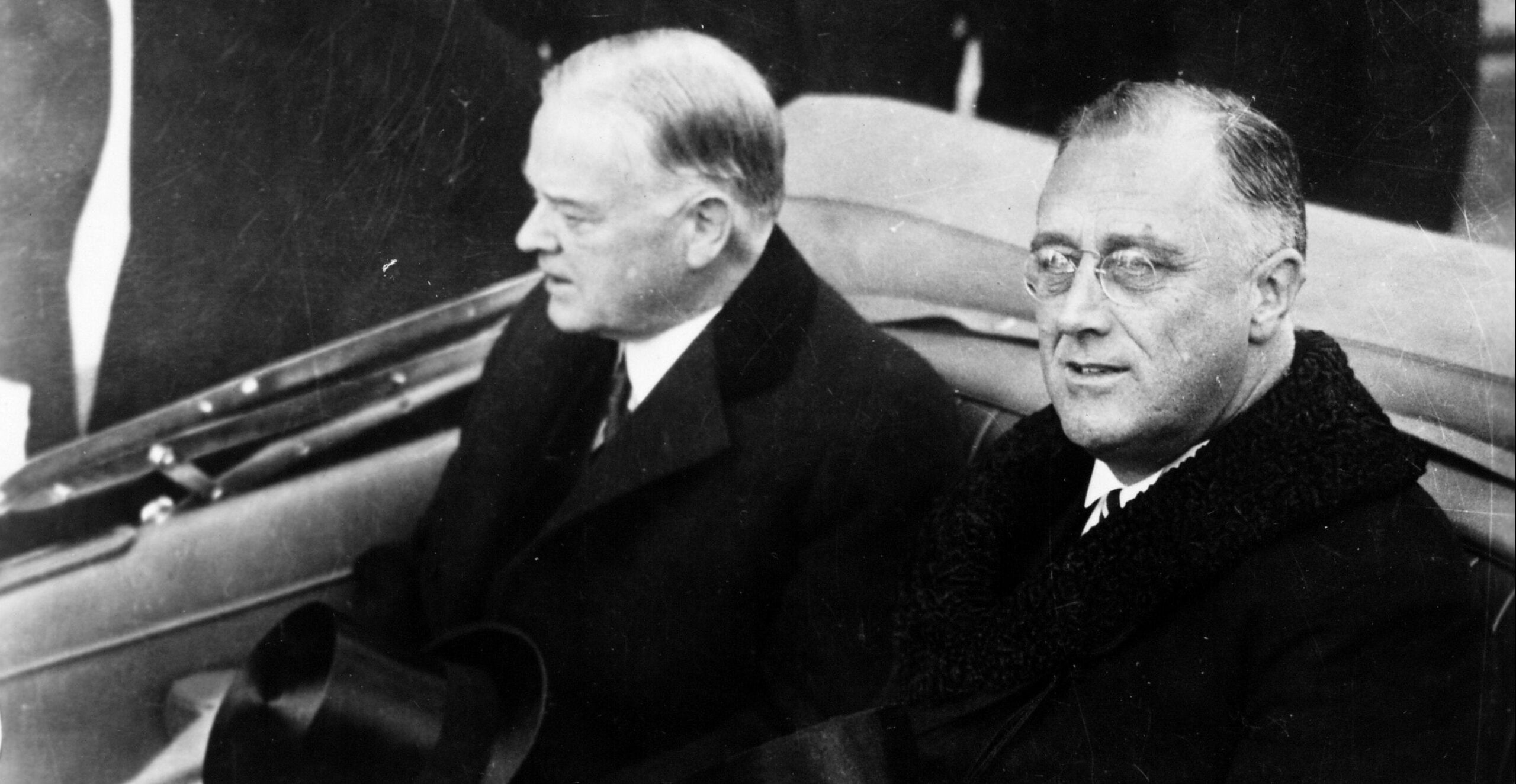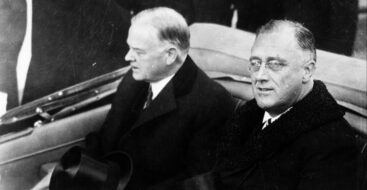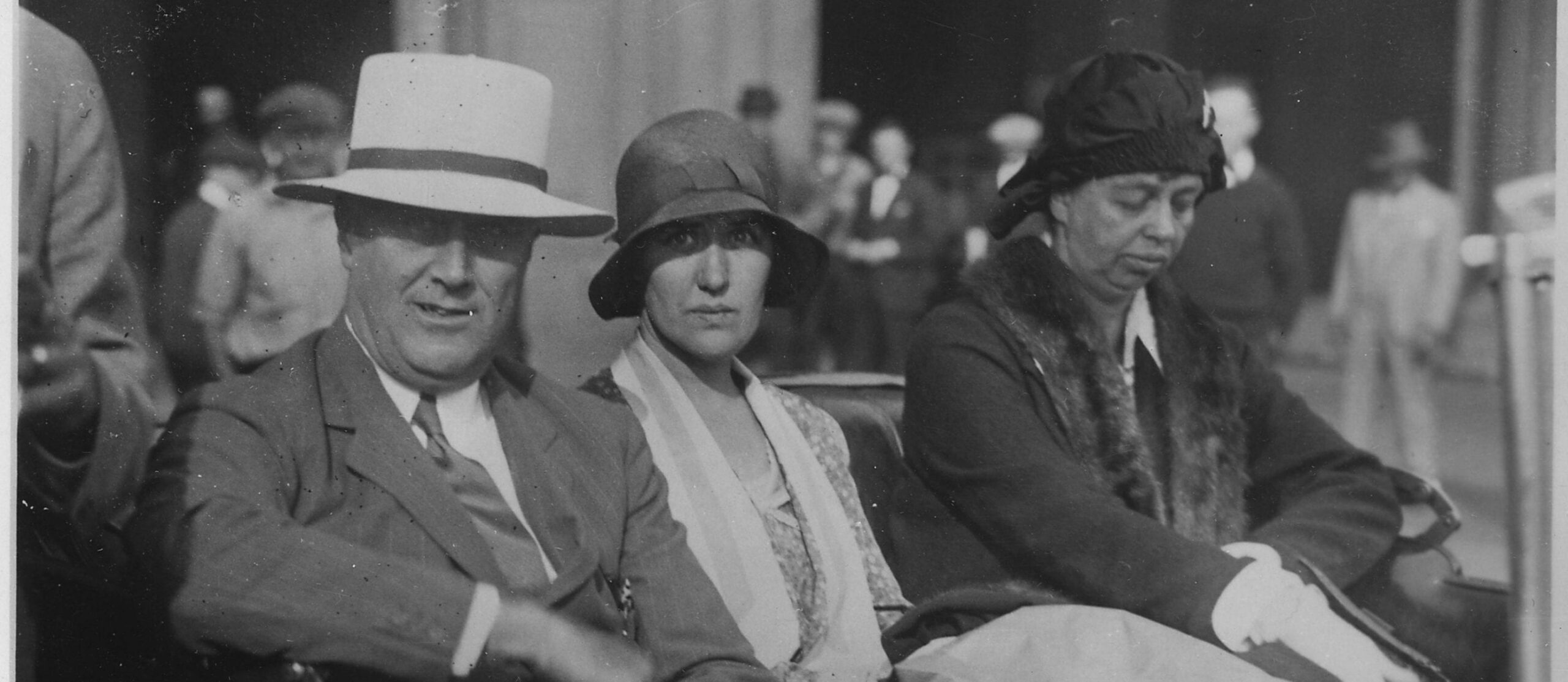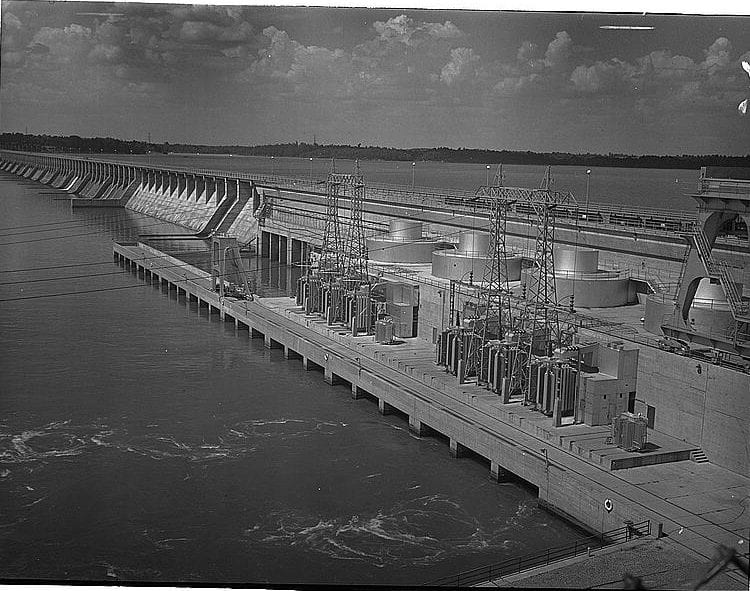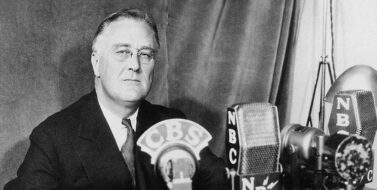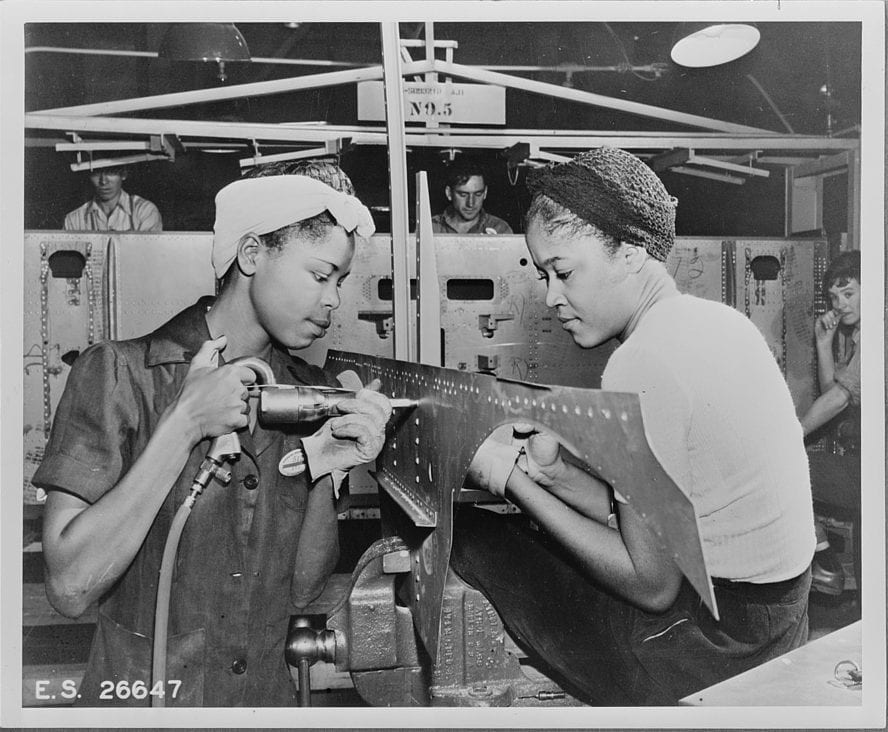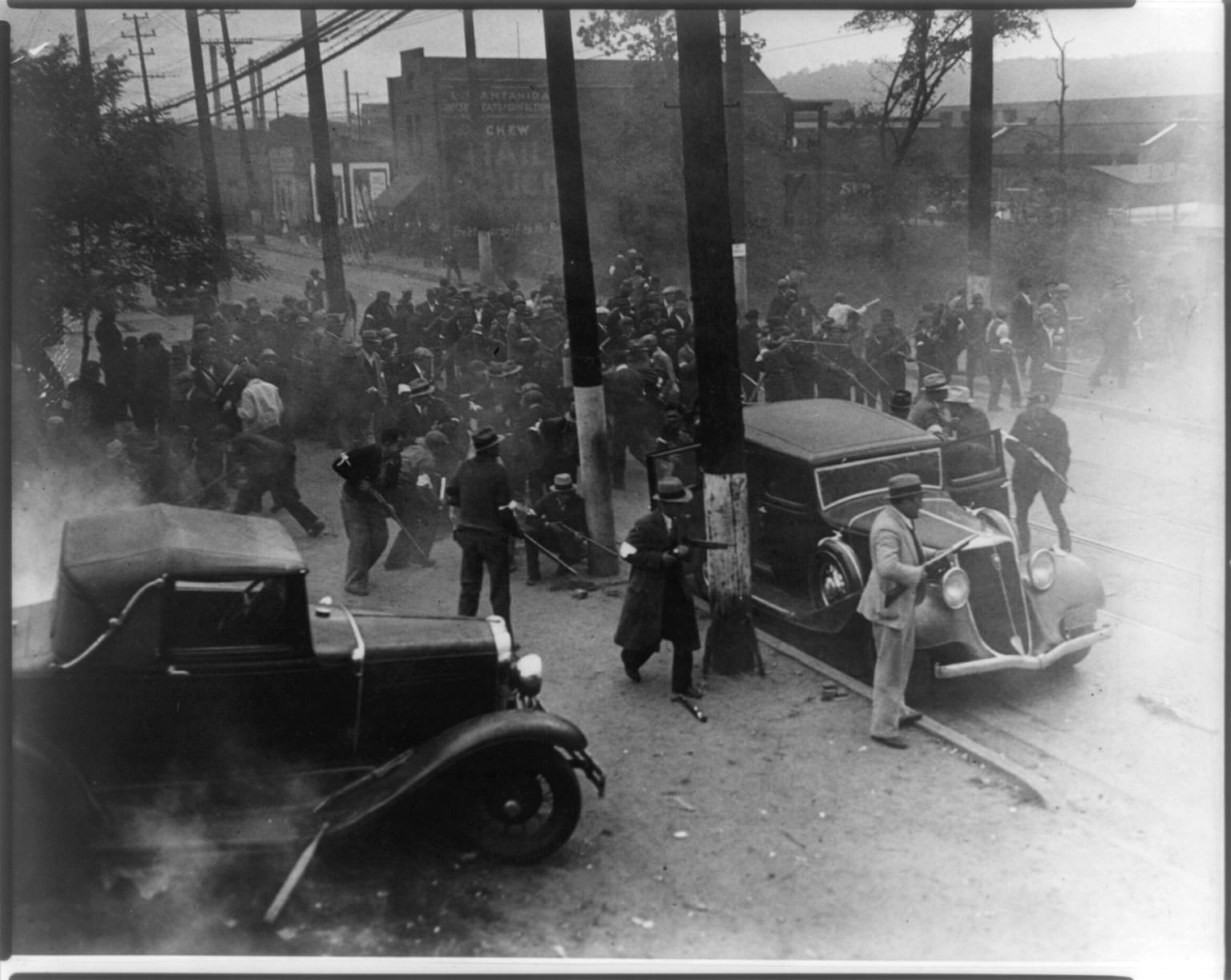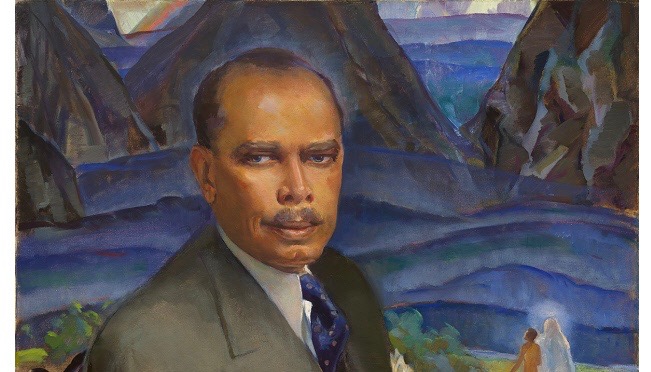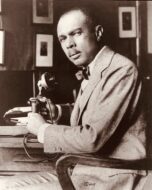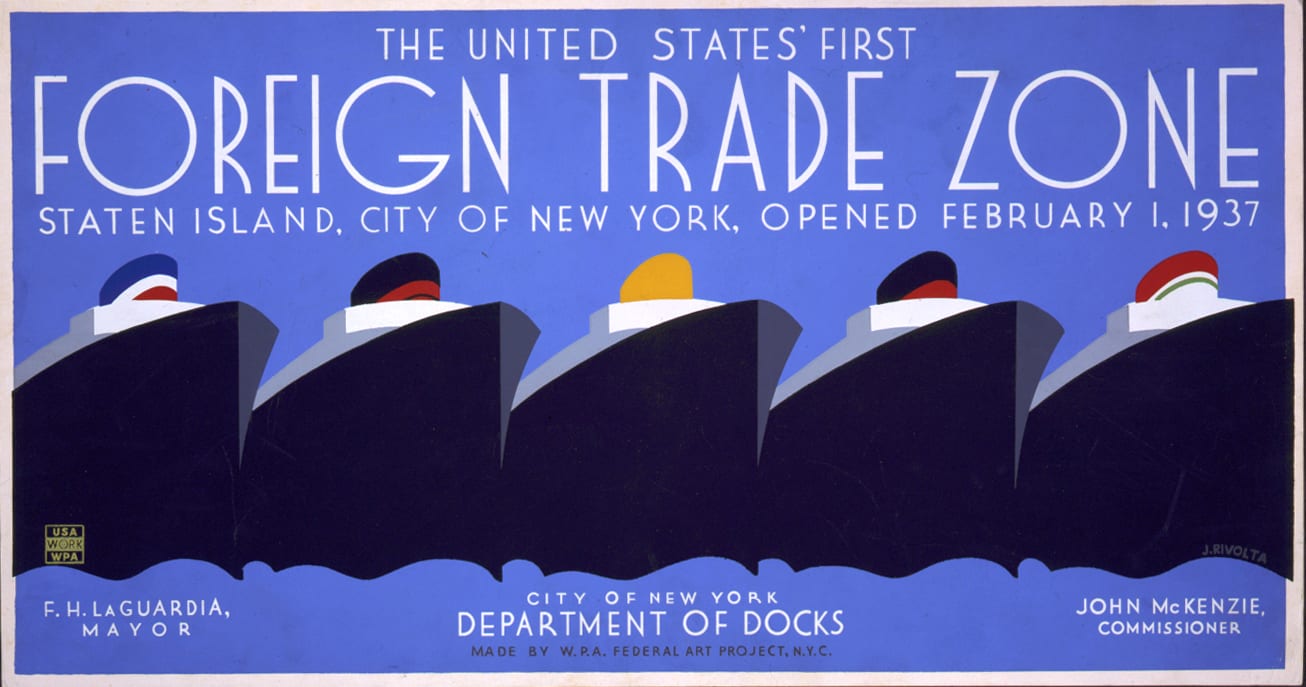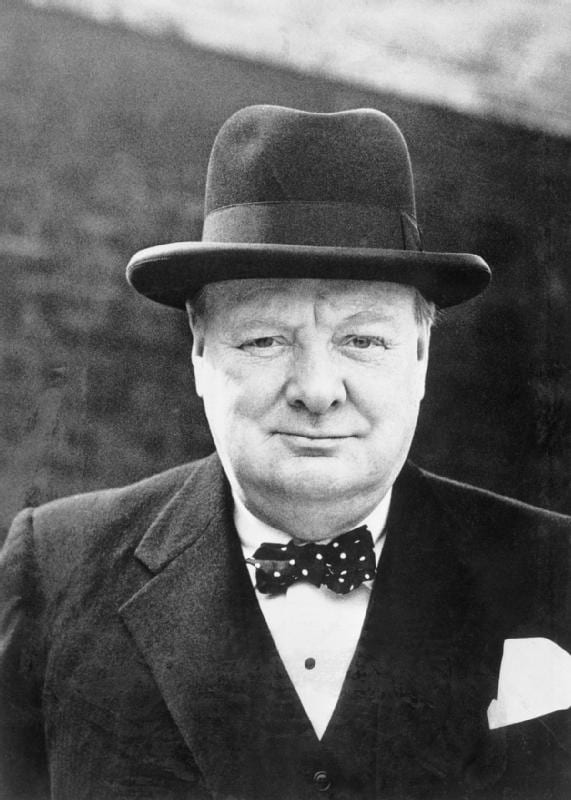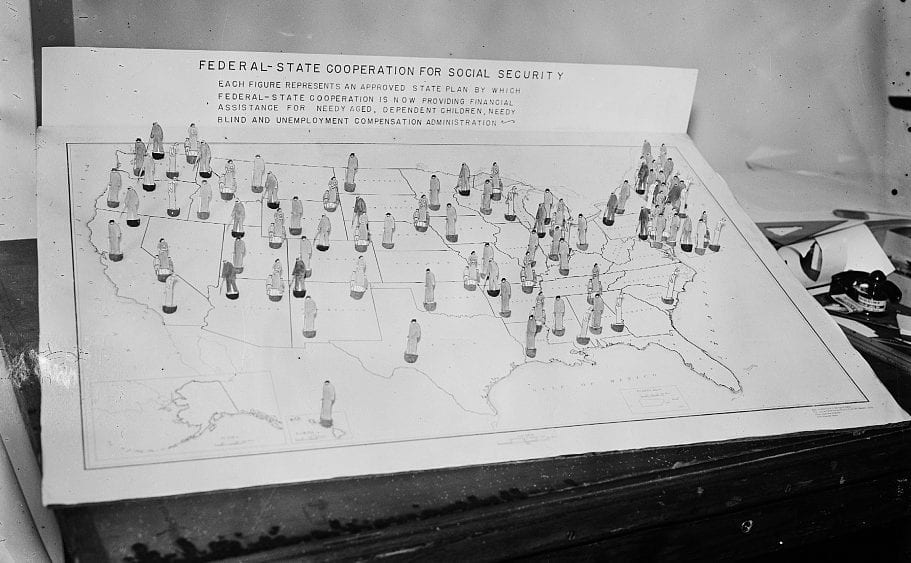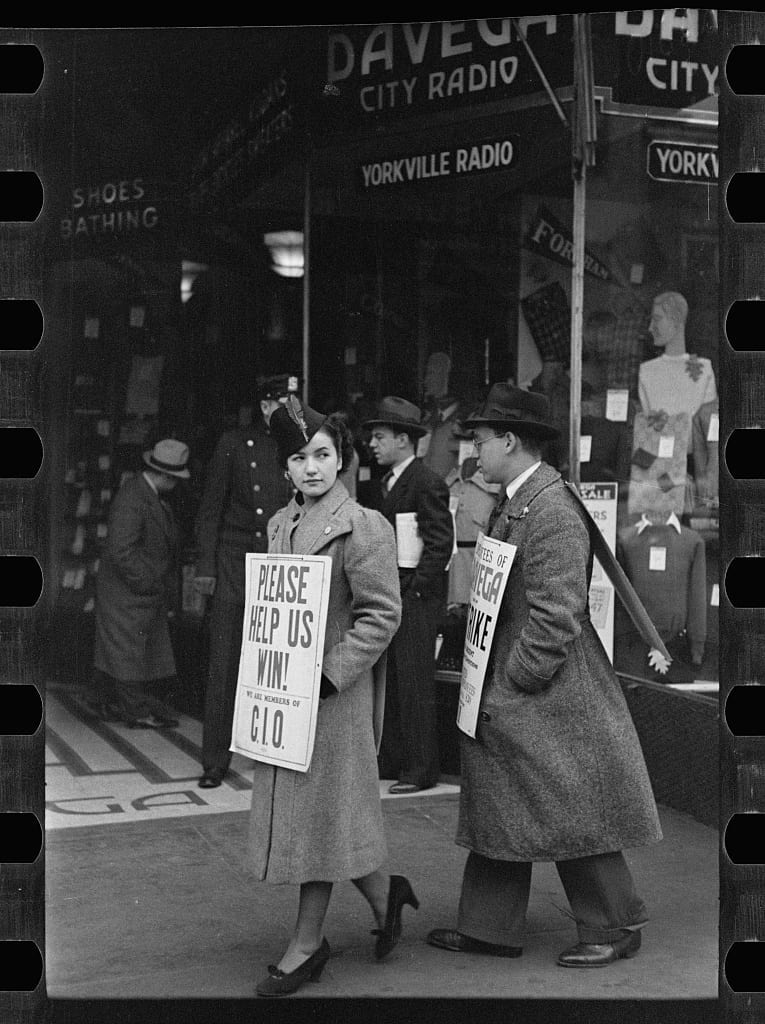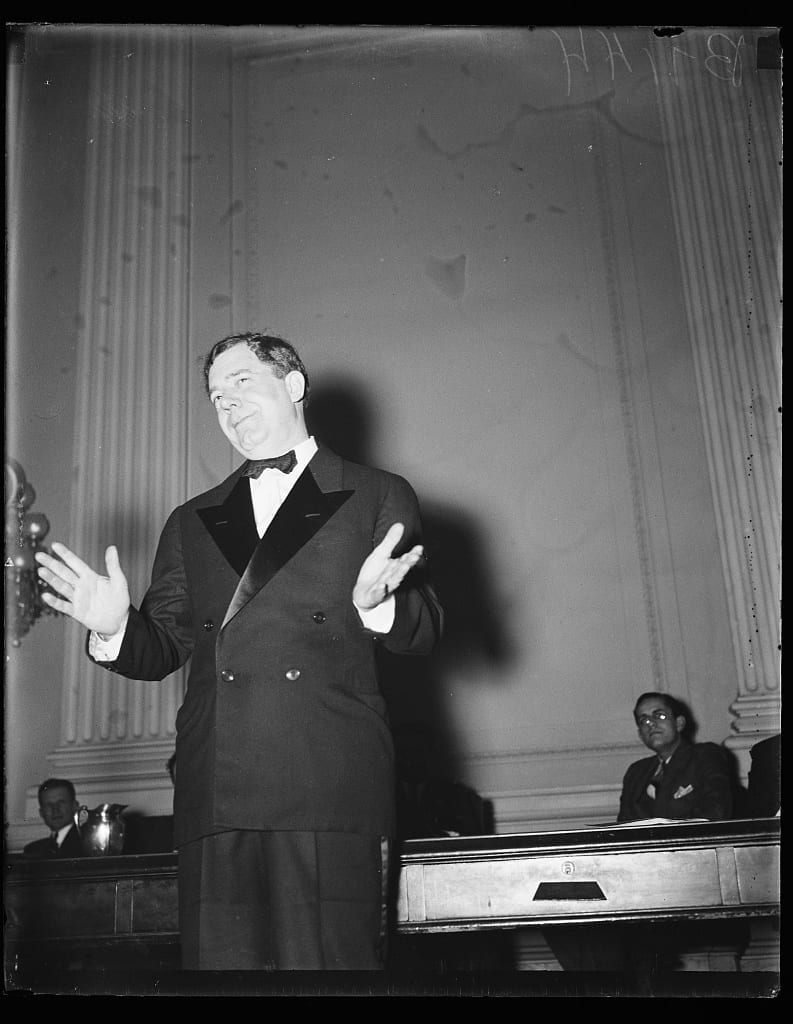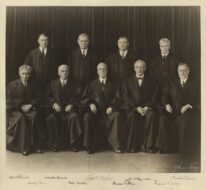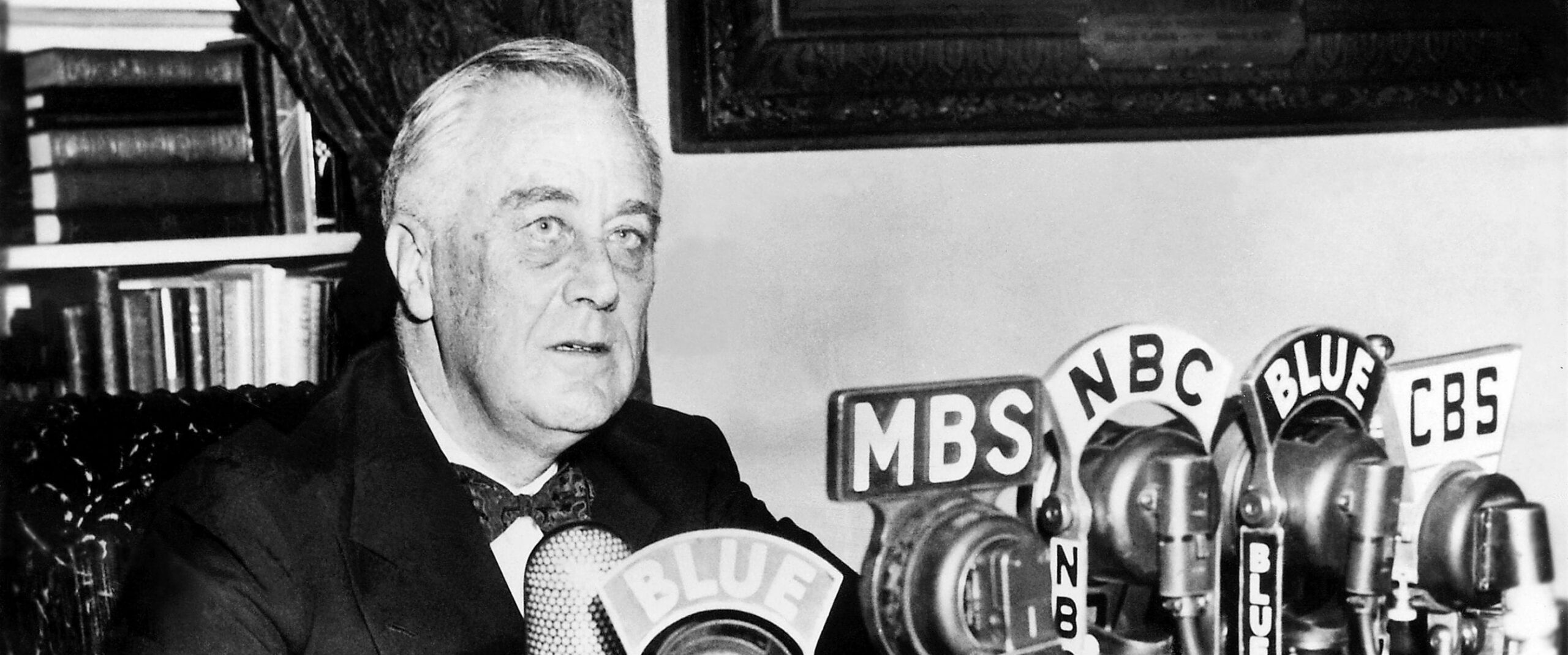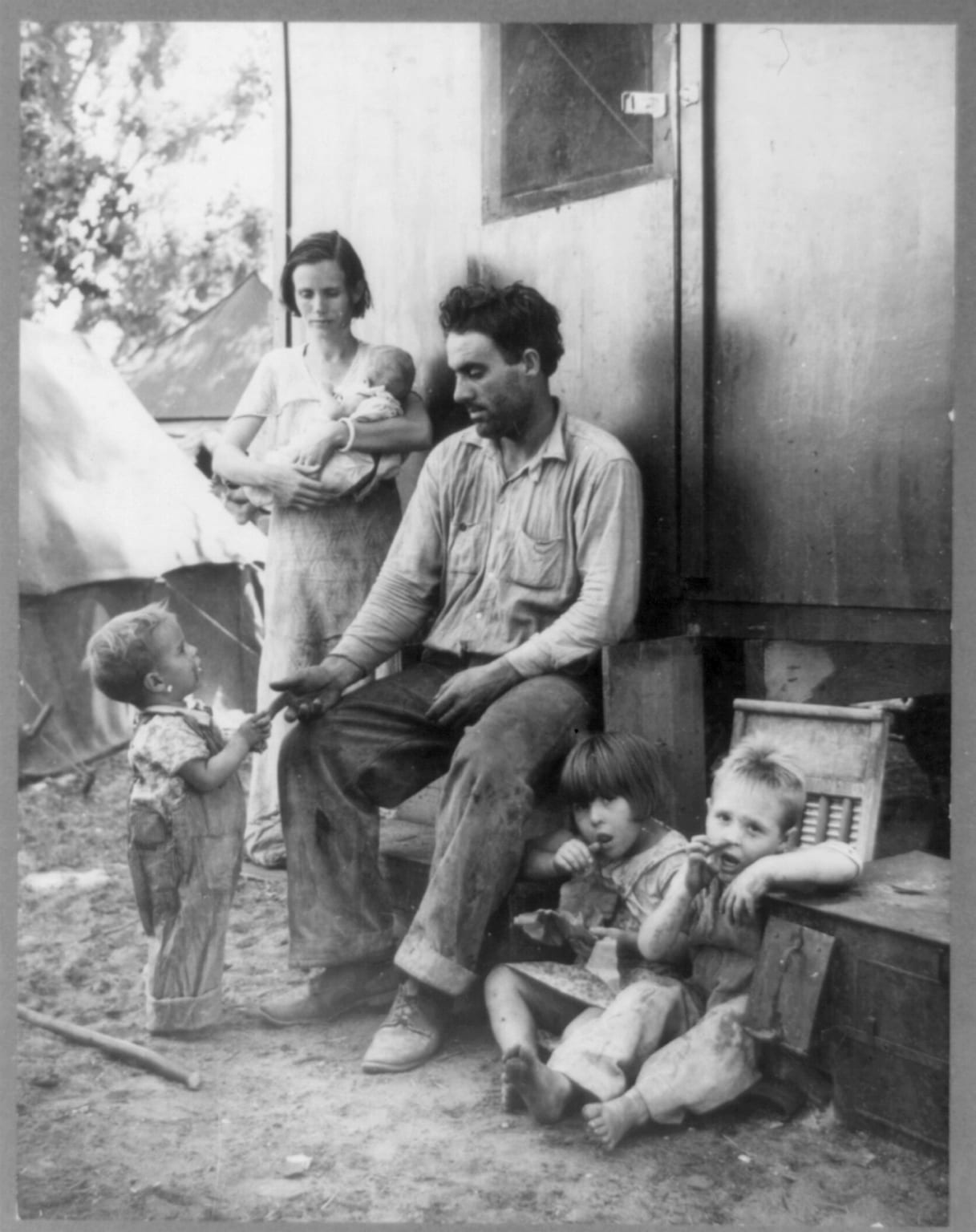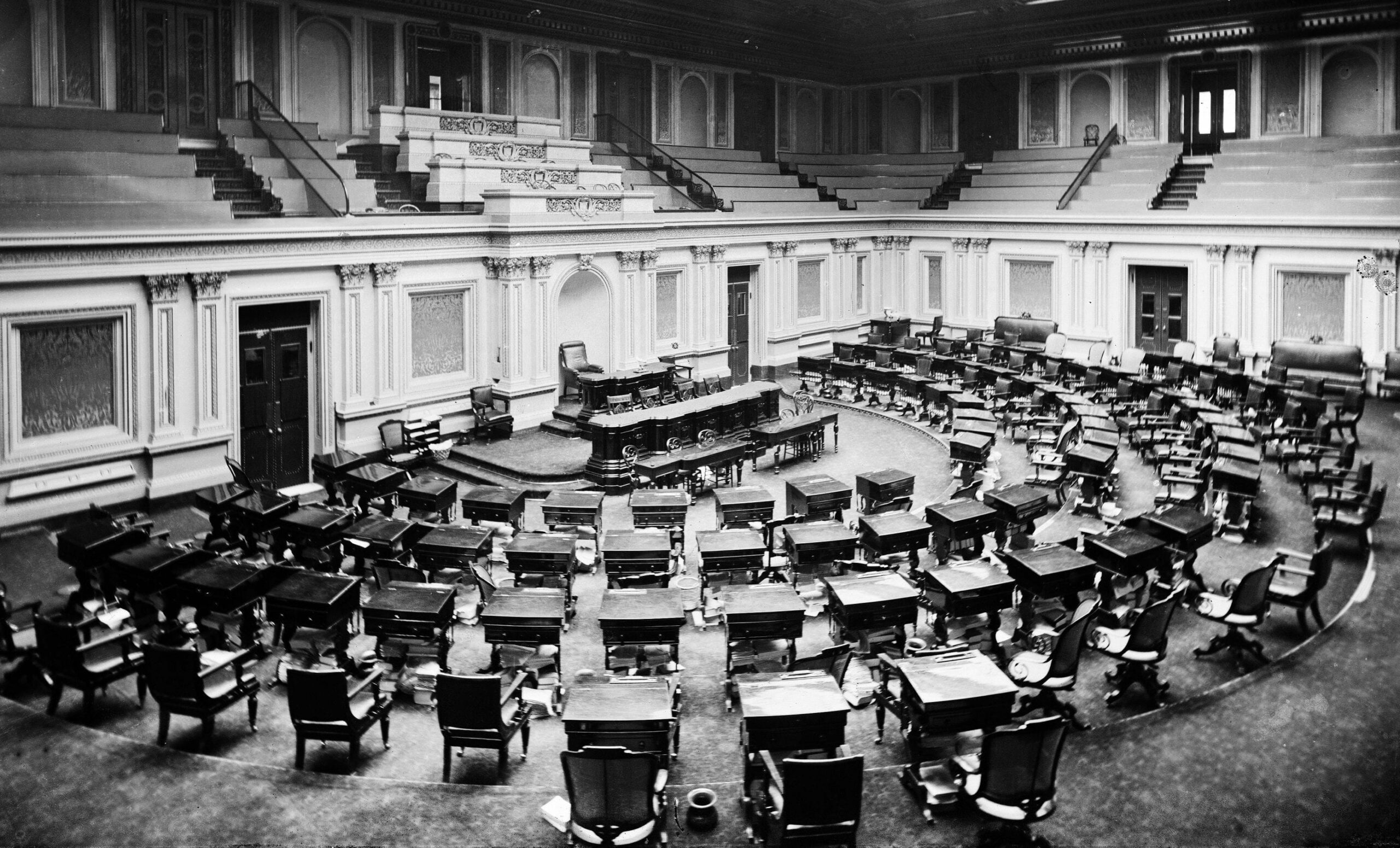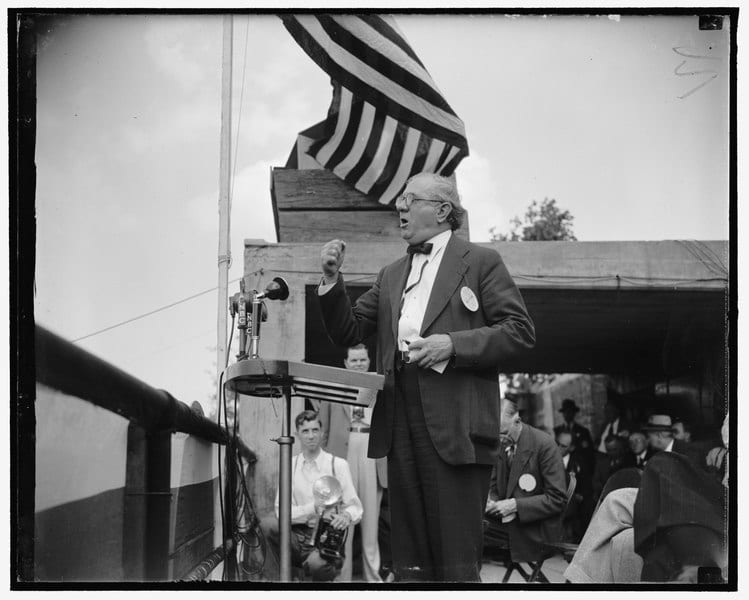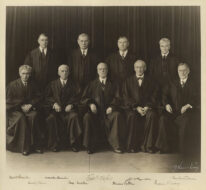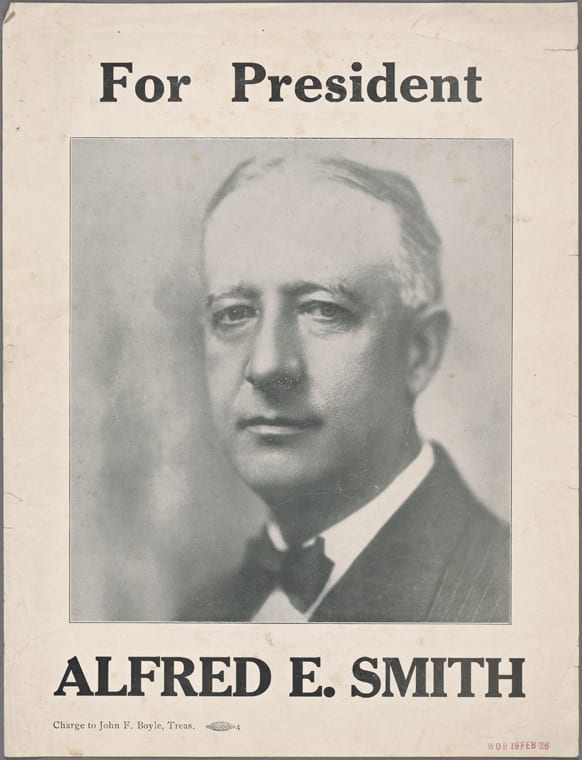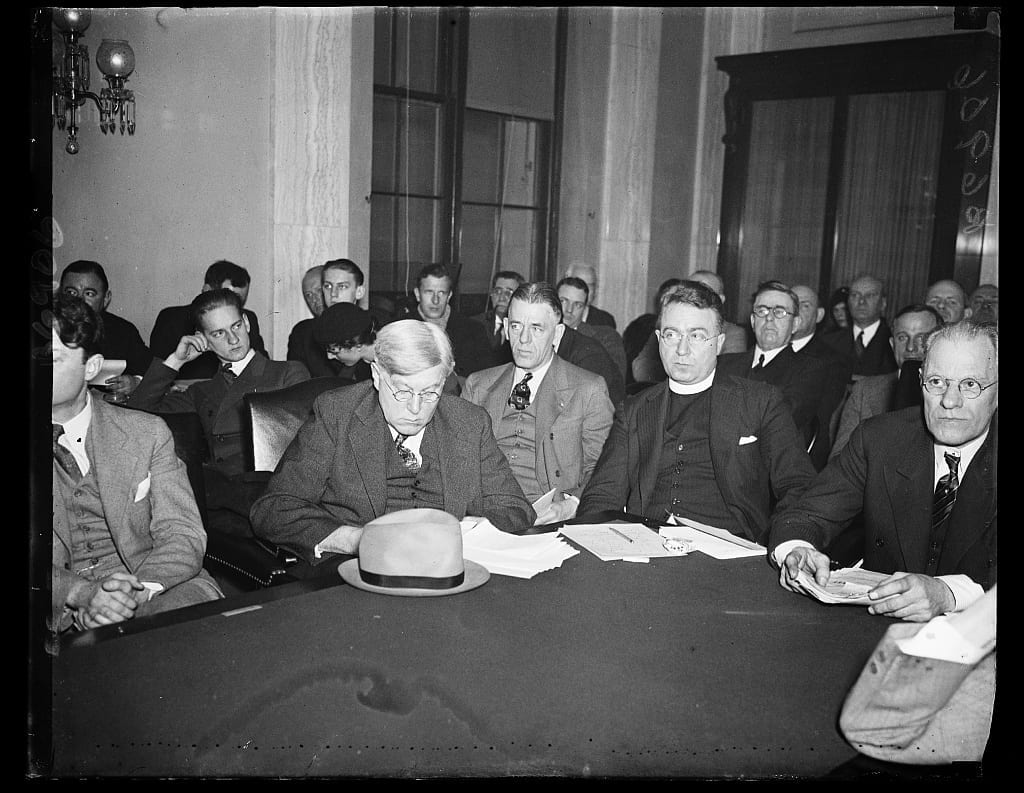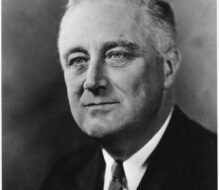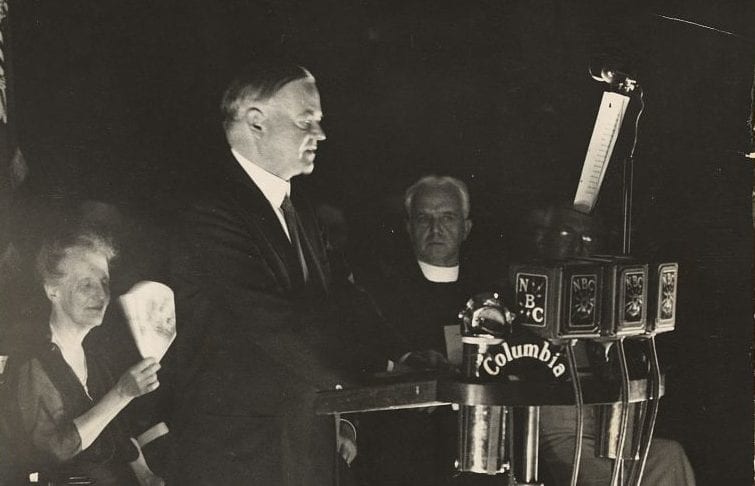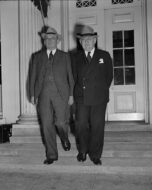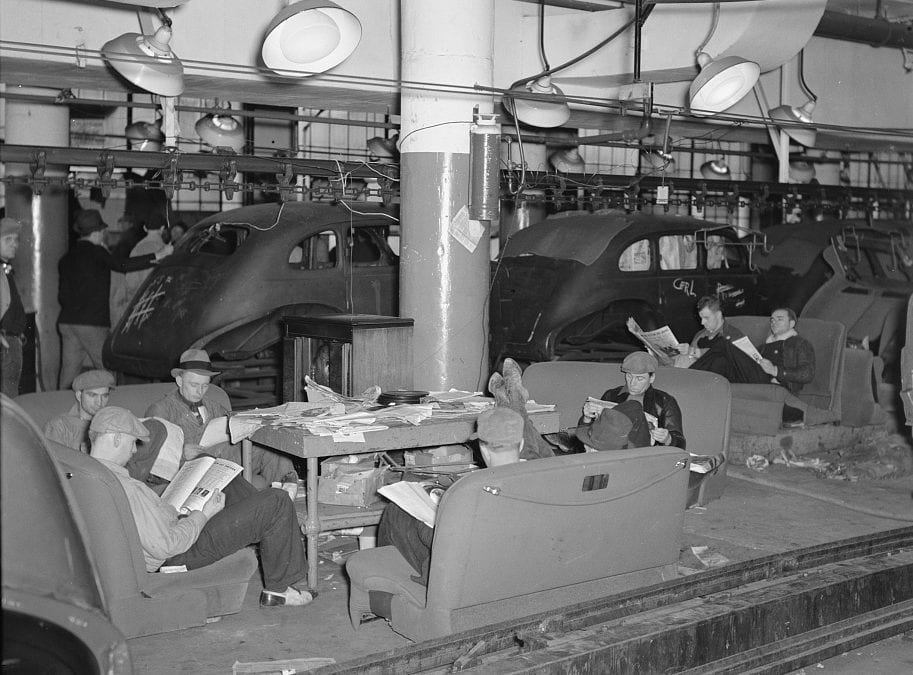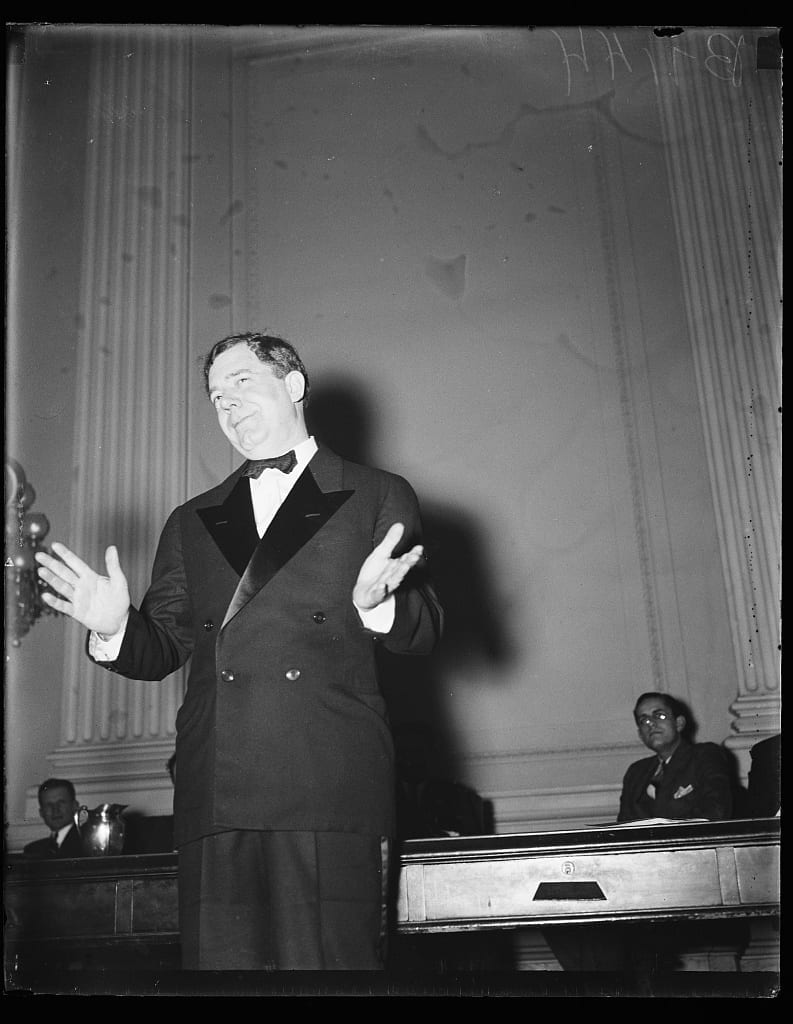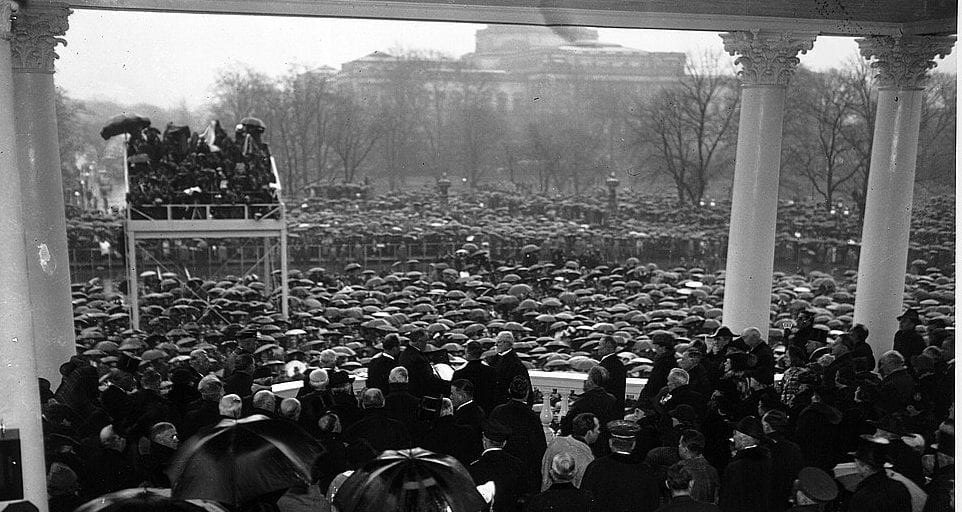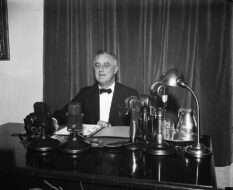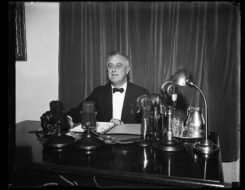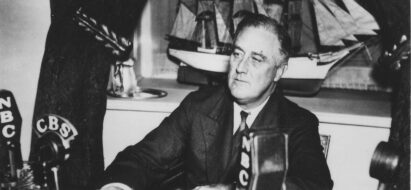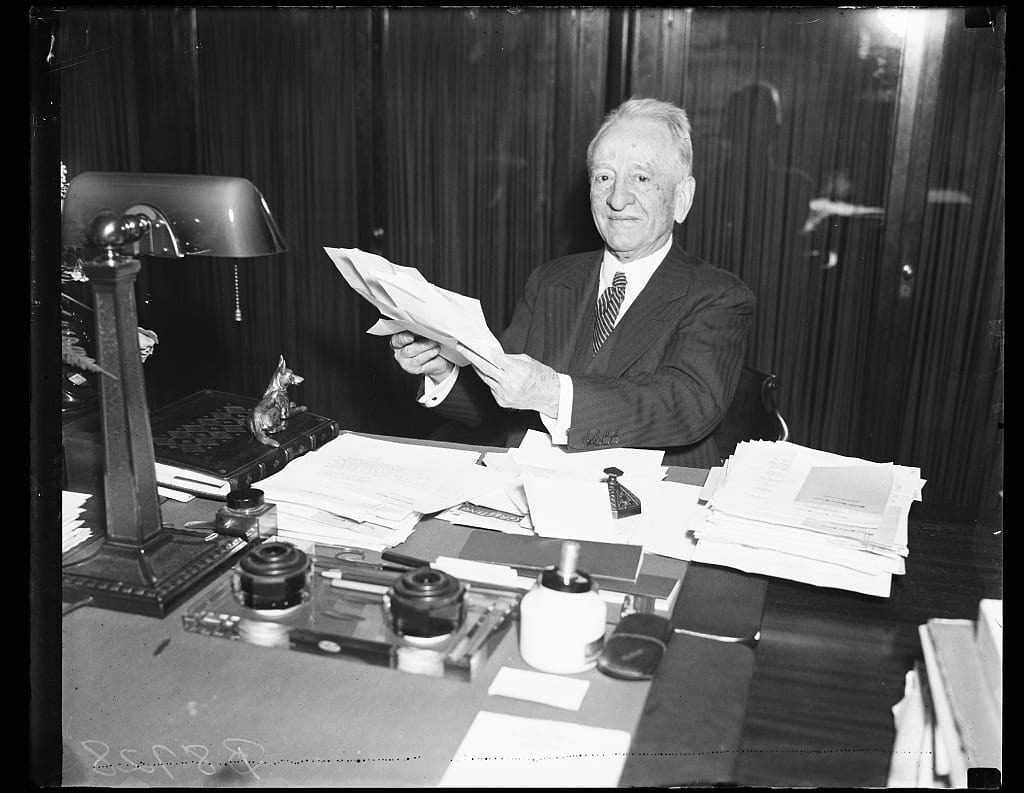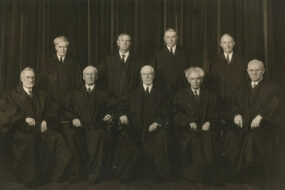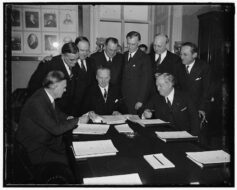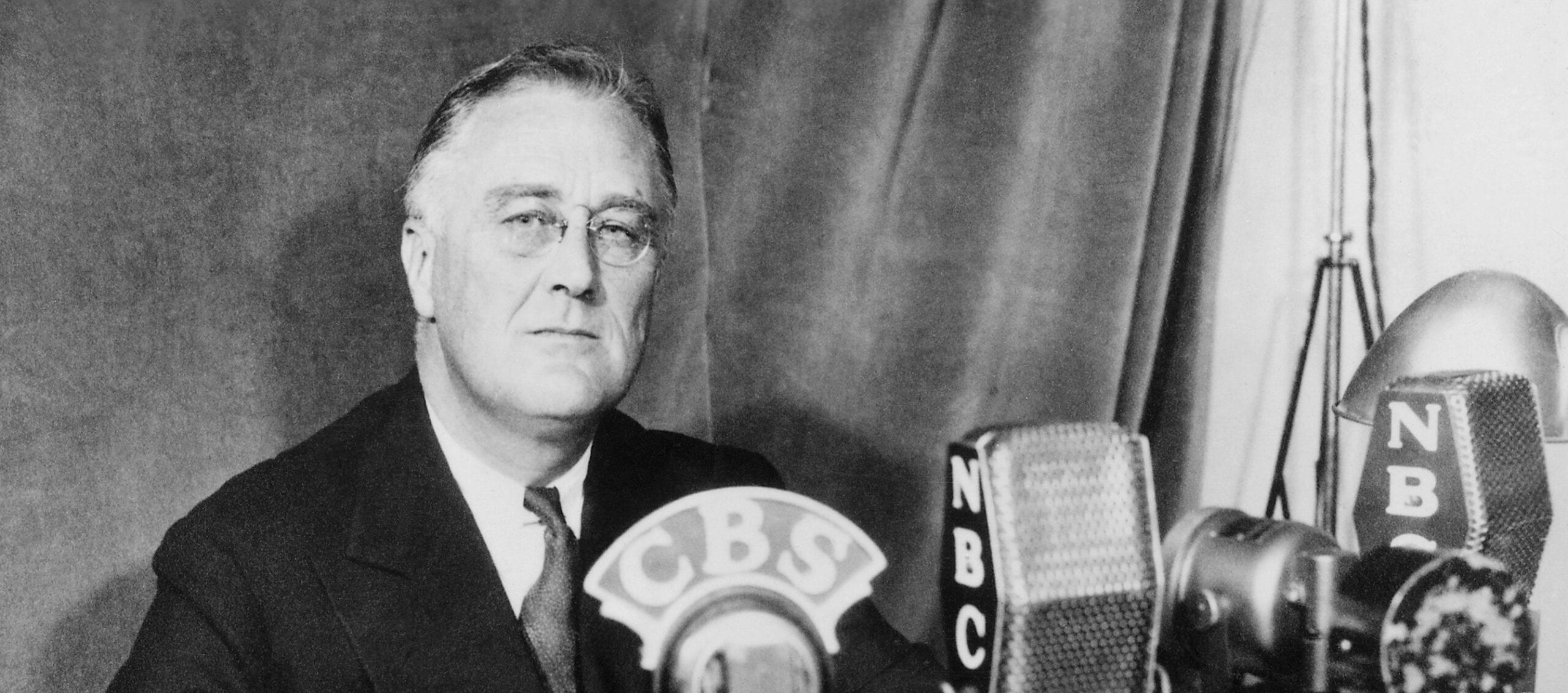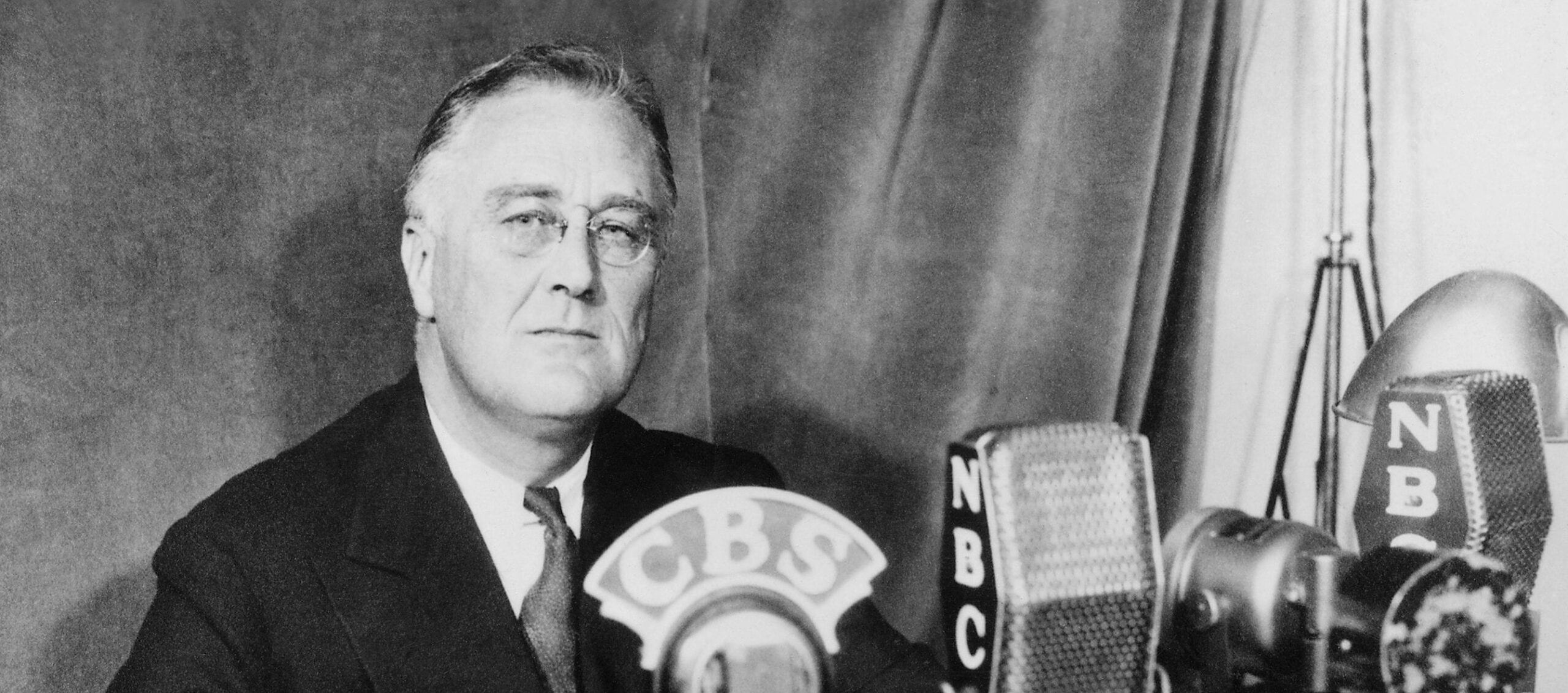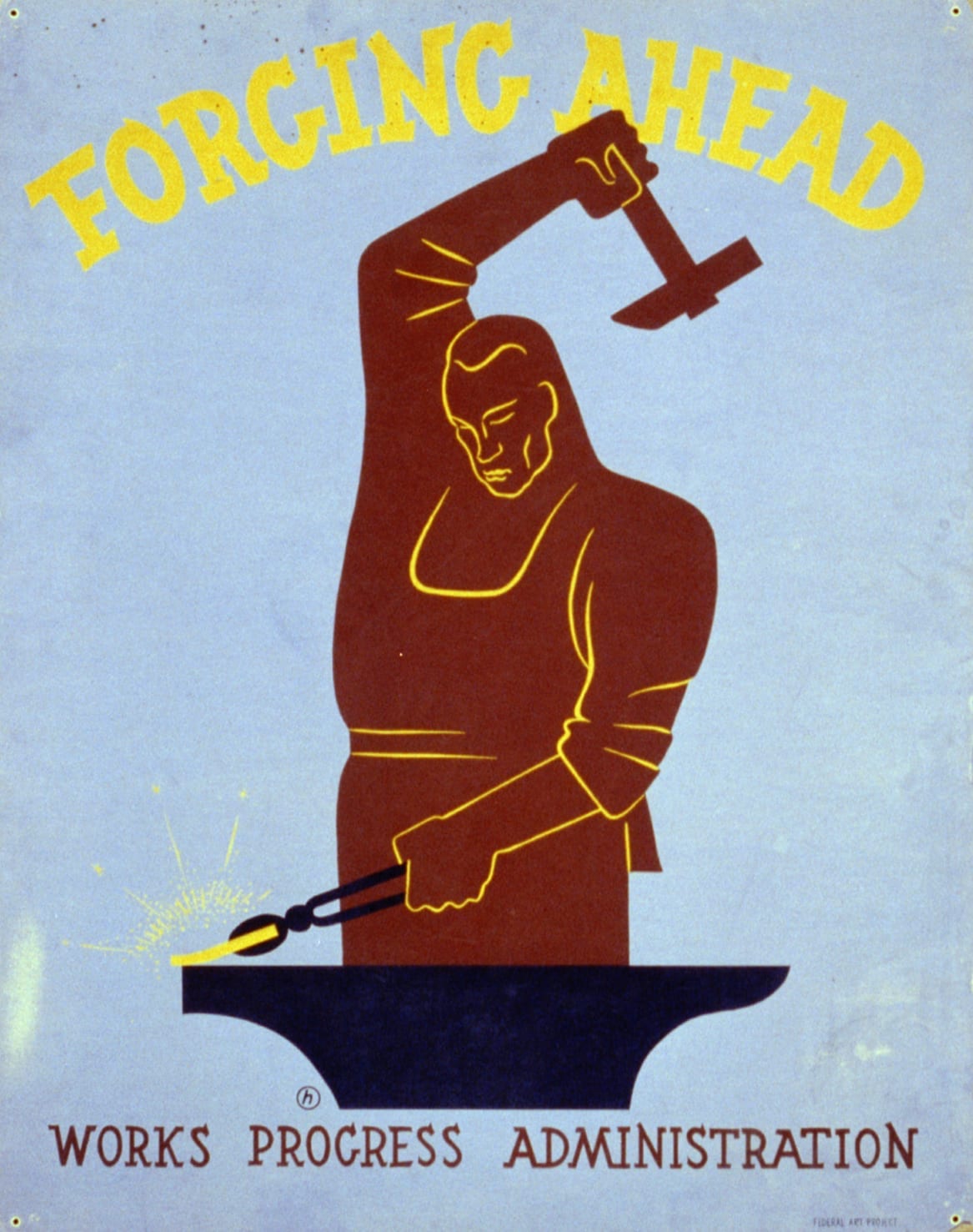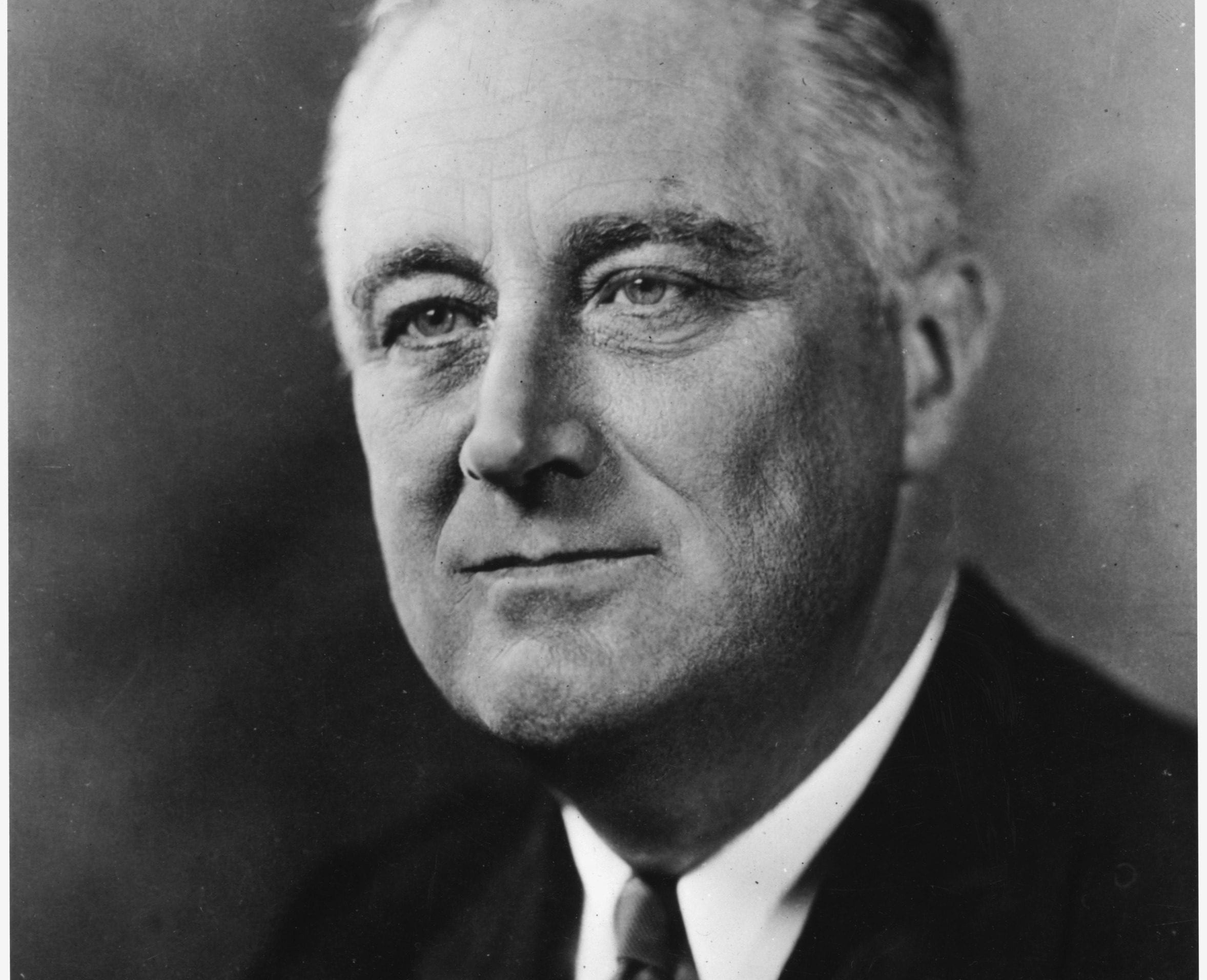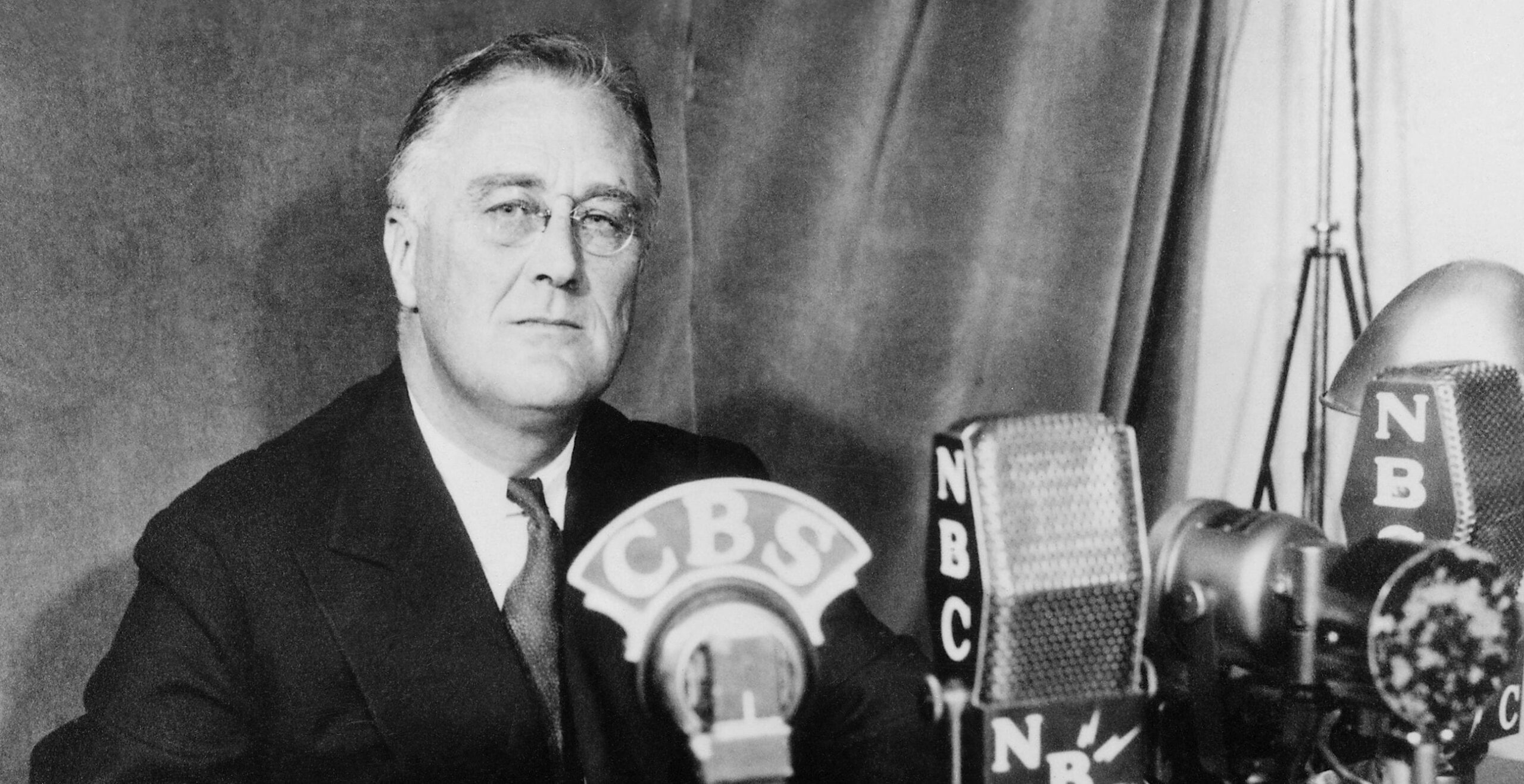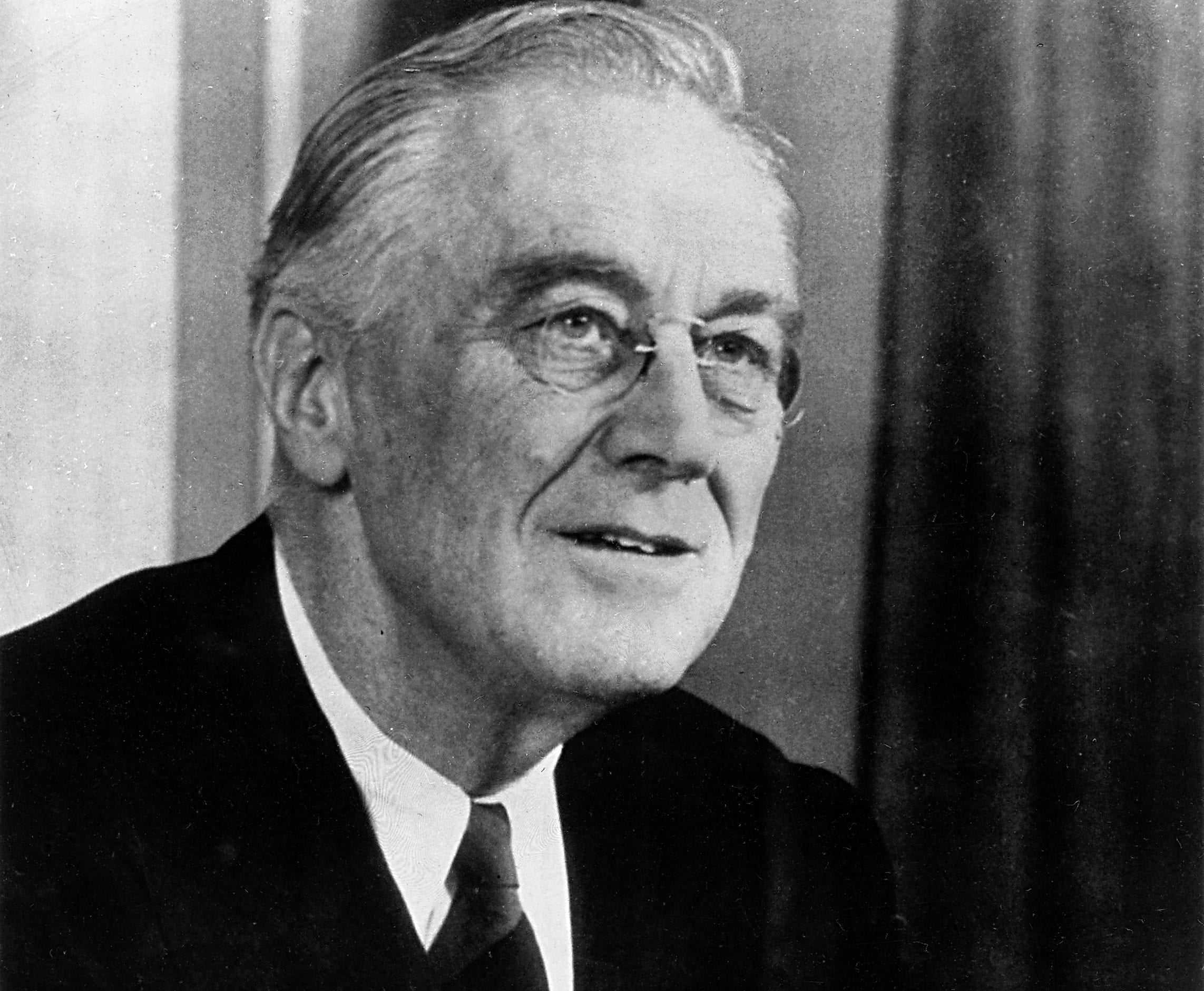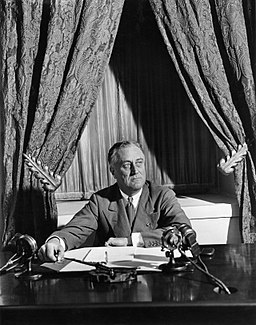
No study questions
No related resources
Introduction
The farm sector of the American economy had struggled in the 1920s (See photo on page 139), but overall by 1928, the United States had enjoyed eight years of unprecedented prosperity under Republican Presidents Harding and Coolidge. As the 1928 presidential race drew to a close, the Republican candidate, former Secretary of Commerce Herbert Hoover, outlined the Republicans’ governing philosophy (Document A), which he credited with producing the prosperity. Seven months after Hoover took office, in October 1929, the stock market crashed. After two weeks, it recovered somewhat, but then began a long-term decline, as the American economy fell into what became known as the Great Depression.
The fall in the stock market and the resulting loss of wealth was not the sole cause of the Depression. Economists still debate what broader effect the stock market crash had on the American economy and why the Great Depression was so severe and so prolonged. Two factors that postdate the stock market crash and are part of the current debate – the decrease in foreign trade (Document B) and the failure of the banking system (Document F) – were noted by contemporaries. However, contemporaries tended to agree that the US government should ensure the soundness of the financial system by setting its own financial house in order. This meant reducing its debt by curtailing its expenditures (for example, Documents C, F) and even raising taxes, if necessary. Today, most economists would consider such measures counterproductive during a depression. High tariffs restricting trade did not encourage recovery, and reductions in government spending removed an economic stimulus that might have helped. (Economic orthodoxy began to change with the publication of John Maynard Keynes’ The General Theory of Employment, Interest and Money, in 1936, which called for governments to increase spending and deficits during a downturn.)
Hoover responded to the economic difficulties according to the principles he had articulated in 1928. The American system was sound, he thought, and would recover with only limited assistance from the government. As the economic situation worsened, however, Hoover did propose a series of measures to deal with the crisis, including the establishment of the Reconstruction Finance Corporation (RFC), a government entity that lent money to state and local governments, banks, and other businesses.
Franklin Delano Roosevelt, the leading Democratic candidate for President in 1932, argued that the American system as championed by Hoover was not sound and needed to be changed.
In a series of speeches in 1932 (Documents C, D, and E), Roosevelt explained why he thought the Depression had occurred and what had to be done to restore the country to economic health. This was the “New Deal” that Roosevelt offered the American people (Document D).
In his final weeks in the Oval Office, as the economic crisis reached its most severe stage, Hoover argued that President-elect Roosevelt had made the situation worse by refusing to commit himself to balancing the budget and maintaining a sound currency. Hoover first offered his account verbally to one of his closest political allies, Senator Simeon Fess of Ohio. At Fess’s request, Hoover put his remarks in writing in a letter he sent the Senator (Document F).
Documents in this chapter are available separately by following the hyperlinks below:
A. Herbert Hoover, “Principles and Ideals of United States Government,” October 22, 1928
B. Representative Jacob Milligan (D-MO), Speech on the Smoot-Hawley Tariff, July 3, 1930
C. Franklin D. Roosevelt, “The Forgotten Man,” April 7, 1932
D. Franklin D. Roosevelt, Acceptance Speech at the Democratic Convention, July 2, 1932
E. Franklin D. Roosevelt, Commonwealth Club Address, September 23, 1932
F. President Herbert Hoover to Senator Simeon Fess (R-OH), February 21, 1933
Discussion Questions
A. According to President Herbert Hoover, what were the major causes of the Great Depression, and what were the best ways to respond? How did Franklin D. Roosevelt’s views on the causes and solutions to the economic crisis differ from Hoover’s? How did the American system championed by Hoover differ from the New Deal offered by Roosevelt? How does “rugged individualism” differ from concern for “the forgotten man”? What were the different responses they offered to the “boom and bust” economic cycle? Was Roosevelt right to argue that he was following a bottom-up approach, while Hoover was following a top-down approach? What did Roosevelt mean when he said that the age of enlightened administration had come? Both Hoover and Roosevelt spoke of equality of opportunity. Did they mean the same thing by this phrase? How did each think such equality was best achieved?
B. How do the powers of the federal government implied in the New Deal compare to those Justice David Brewer described when delivering his opinion in In re Debs (Chapter 18, Document B)?
C. How might we evaluate these documents in light of the questions about moral virtue and market behavior raised in Volume 1, Chapter 2? What role, if any, do the authors in this chapter see for virtue in the economy? What are the consequences of neglecting to consider virtue in this context?
A. Herbert Hoover, “Principles and Ideals of the United States Government,” October 22, 1928
. . . When [World War I] closed, the most vital of all issues both in our own country and throughout the world was whether Governments should continue their wartime ownership and operation of many instrumentalities of production and distribution. We were challenged with a peace-time choice between the American system of rugged individualism and a European philosophy of diametrically opposed doctrines – doctrines of paternalism and state socialism. The acceptance of these ideas would have meant the destruction of self-government through centralization of government. It would have meant the undermining of the individual initiative and enterprise through which our people have grown to unparalleled greatness. . . .
There is, therefore, submitted to the American people [in the election of 1928] a question of fundamental principle. That is: shall we depart from the principles of our American political and economic system, upon which we have advanced beyond all the rest of the world, in order to adopt methods based on principles destructive of its very foundations? And I wish to emphasize the seriousness of these proposals. I wish to make my position clear; for this goes to the very roots of American life and progress.
I should like to state to you the effect that this projection of government in business would have upon our system of self-government and our economic system. That effect would reach to the daily life of every man and woman. It would impair the very basis of liberty and freedom not only for those left outside the fold of expanded bureaucracy but for those embraced within it.
Let us first see the effect upon self-government. When the Federal Government undertakes to go into commercial business, it must at once set up the organization and administration of that business, and it immediately finds itself in a labyrinth, every alley of which leads to the destruction of self-government.
Commercial business requires a concentration of responsibility. Self-government requires decentralization and many checks and balances to safeguard liberty. Our Government to succeed in business would need become in effect a despotism. There at once begins the destruction of self-government.
. . .
The effect upon our economic progress would be even worse. Business progressiveness is dependent on competition. New methods and new ideas are the outgrowth of the spirit of adventure, of individual initiative and of individual enterprise. Without adventure there is no progress. No government administration can rightly take chances with taxpayers’ money. . . .
The Government in commercial business does not tolerate amongst its customers the freedom of competitive reprisals to which private business is subject. Bureaucracy does not tolerate the spirit of independence; it spreads the spirit of submission into our daily life and penetrates the temper of our people not with the habit of powerful resistance to wrong but with the habit of timid acceptance of irresistible might.
Bureaucracy is ever desirous of spreading its influence and its power. You cannot extend the mastery of the government over the daily working life of a people without at the same time making it the master of the people’s souls and thoughts. Every expansion of government in business means that government in order to protect itself from the political consequences of its errors and wrongs is driven irresistibly without peace to greater and greater control of the nations’ press and platform. Free speech does not live many hours after free industry and free commerce die.
It is a false liberalism that interprets itself into the Government operation of commercial business. Every step of bureaucratizing of the business of our country poisons the very roots of liberalism – that is, political equality, free speech, free assembly, free press, and equality of opportunity. It is the road not to more liberty, but to less liberty. Liberalism should be found not striving to spread bureaucracy but striving to set bounds to it. True liberalism seeks all legitimate freedom first in the confident belief that without such freedom the pursuit of all other blessings and benefits is vain. That belief is the foundation of all American progress, political as well as economic.
Liberalism is a force truly of the spirit, a force proceeding from the deep realization that economic freedom cannot be sacrificed if political freedom is to be preserved. Even if governmental conduct of business could give us more efficiency instead of less efficiency, the fundamental objection to it would remain unaltered and unabated. It would destroy political equality. It would increase rather than decrease abuse and corruption. It would stifle initiative and invention. It would undermine the development of leadership. It would cramp and cripple the mental and spiritual energies of our people. It would extinguish equality and opportunity. It would dry up the spirit of liberty and progress. For these reasons primarily, it must be resisted. For a hundred and fifty years liberalism has found its true spirit in the American system, not in the European systems.
I do not wish to be misunderstood in this statement. I am defining a general policy. It does not mean that our government is to part with one iota of its national resources without complete protection to the public interest. I have already stated that where the government is engaged in public works for purposes of flood control, of navigation, of irrigation, of scientific research or national defense, or in pioneering a new art, it will at times necessarily produce power or commodities as a by-product. But they must be a by-product of the major purpose, not the major purpose itself.
Nor do I wish to be misinterpreted as believing that the United States is free-for-all and devil-take-the-hind-most. The very essence of equality of opportunity and of American individualism is that there shall be no domination by any group or combination in this Republic, whether it be business or political. On the contrary, it demands economic justice as well as political and social justice. It is no system of laissez faire. . . .
Our people have the right to know whether we can continue to solve our great problems without abandonment of our American system. I know we can. We have demonstrated that our system is responsive enough to meet any new and intricate development in our economic and business life. We have demonstrated that we can meet any economic problem and still maintain our democracy as master in its own house and that we can at the same time preserve equality of opportunity and individual freedom. . . .
The American people from bitter experience have a rightful fear that great business units might be used to dominate our industrial life and by illegal and unethical practices destroy equality of opportunity.
Years ago the Republican Administration established the principle that such evils could be corrected by regulation. It developed methods by which abuses could be prevented while the full value of industrial progress could be retained for the public. It insisted upon the principle that when great public utilities were clothed with the security of partial monopoly, whether it be railways, power plants, telephones or what not, then there must be the fullest and most complete control of rates, services, and finances by government or local agencies. It declared that these businesses must be conducted with glass pockets. . . .
One of the great problems of government is to determine to what extent the Government shall regulate and control commerce and industry and how much it shall leave it alone. No system is perfect. We have had many abuses in the private conduct of business. That every good citizen resents. It is just as important that business keep out of government as that government keep out of business. . . .
And what have been the results of our American system? Our country has become the land of opportunity to those born without inheritance, not merely because of the wealth of its resources and industry but because of this freedom of initiative and enterprise. Russia has natural resources equal to ours. Her people are equally industrious, but she has not had the blessings of 150 years of our form of government and of our social system.
By adherence to the principles of decentralized self-government, ordered liberty, equal opportunity and freedom to the individual, our American experiment in human welfare has yielded a degree of well-being unparalleled in all the world. It has come nearer to the abolition of poverty, to the abolition of fear of want, than humanity has ever reached before. Progress of the past seven years is the proof of it. This alone furnishes the answer to our opponents who ask us to introduce destructive elements into the system by which this has been accomplished. . . .
My conception of America is a land where men and women may walk in ordered freedom in the independent conduct of their occupations; where they may enjoy the advantages of wealth, not concentrated in the hands of the few but spread through the lives of all, where they build and safeguard their homes, and give to their children the fullest advantages and opportunities of American life; where every man shall be respected in the faith that his conscience and his heart direct him to follow; where a contented and happy people, secure in their liberties, free from poverty and fear, shall have the leisure and impulse to seek a fuller life.
Some may ask where all this may lead beyond mere material progress. It leads to a release of the energies of men and women from the dull drudgery of life to a wider vision and a higher hope. It leads to the opportunity for greater and greater service, not alone from man to man in our own land, but from our country to the whole world. It leads to an America, healthy in body, healthy in spirit, unfettered, youthful, eager – with a vision searching beyond the farthest horizons, with an open mind sympathetic and generous. It is to these higher ideals and for these purposes that I pledge myself and the Republican Party.
B. Representative Jacob Milligan (D-MO), Speech on the Smoot-Hawley Tariff, July 3, 1930
. . . [I]t is my opinion that it is most inopportune that the tariff bill should have become a law. We have not only a surplus of farm commodities but also a surplus in all industrial lines, hence we must have foreign markets. We cannot afford to destroy our foreign trade in order to allow the American manufacturer to plunder the pockets of the consumer. . . .
The tariff bill was under consideration for seventeen months. During these seventeen months the President had opportunity to inform Congress as to what he meant by “limited tariff revision for the benefit of agriculture.” During these seventeen months the President remained mute. . . . So the only logical conclusion that can be reached is that the bill was entirely indorsed by the President during its making. So, I would not take credit from the President and the “Chief Manipulator” of this legislation in the Senate. I think the bill should be known as the Hoover-Grundy tariff bill. The President assumed full responsibility when he signed the bill, as it could not have become law without his signature.
On the day the tariff bill became a law all grain prices fell to a new low level for the season. Wheat fell to the lowest price in a year, oats to the lowest price in eight years, rye to the lowest price reached in thirty years. Cotton fell to the lowest price in more than three years.
The steel industry reported a further decline in operations to 69 per cent of capacity.
On the day the bill passed, the Department of Commerce announced that American exports dropped in May to the lowest point in the last six years.
Stocks dropped in value $2,000,000,000 the day the President announced that he would sign the bill.
This tariff law carries a general average increase of 20.4 per cent over the Fordney-McCumber law of 1922, which means an additional burden each year to the consumers of this country. The farmers are told they will benefit by this law. The facts are that every dollar of benefit given the farmer will cost him $10 because of the increase in the rate on the other than the agricultural rates. . . .
There is an increase carried in this law upon practically every thing a person uses in everyday life from the swaddling cloth of the newborn babe to the tombstone he erects above his dead. This tariff law means an average increased cost of from fifty to one hundred dollars to every average householder in the United States each year. How the now overburdened masses can carry this additional burden I do not know.
We hear from certain quarters that prosperity is raging rampant in every corner of the land; that we are enjoying this unprecedented prosperity because Mr. Hoover is President. I am willing to give President Hoover full credit for the so-called Hoover prosperity we are not enjoying.
I understand that two new planets have been discovered and that someone suggested one be named “Hoover Prosperity” because it is invisible; the other “Farm Relief” because it is so far away.
C. Franklin D. Roosevelt, “The Forgotten Man,” April 7, 1932
Although I understand that I am talking under the auspices of the Democratic National Committee, I do not want to limit myself to politics. I do not want to feel that I am addressing an audience of Democrats or that I speak merely as a Democrat myself. The present condition of our national affairs is too serious to be viewed through partisan eyes for partisan purposes. . . .
In my calm judgment, the Nation faces today a more grave emergency than in 1917.
It is said that Napoleon lost the battle of Waterloo because he forgot his infantry – he staked too much upon the more spectacular but less substantial cavalry. The present administration in Washington provides a close parallel. It has either forgotten or it does not want to remember the infantry of our economic army.
These unhappy times call for the building of plans that rest upon the forgotten, the unorganized but the indispensable units of economic power, for plans like those of 1917 that build from the bottom up and not from the top down, that put their faith once more in the forgotten man at the bottom of the economic pyramid.
Obviously, these few minutes tonight permit no opportunity to lay down the ten or a dozen closely related objectives of a plan to meet our present emergency, but I can draw a few essentials, a beginning in fact, of a planned program.
It is the habit of the unthinking to turn in times like this to the illusions of economic magic. People suggest that a huge expenditure of public funds by the Federal Government and by State and local governments will completely solve the unemployment problem. But it is clear that even if we could raise many billions of dollars and find definitely useful public works to spend these billions on, even all that money would not give employment to the seven million or ten million people who are out of work. Let us admit frankly that it would be only a stopgap. A real economic cure must go to the killing of the bacteria in the system rather than to the treatment of external symptoms.
How much do the shallow thinkers realize, for example, that approximately one-half of our whole population, fifty or sixty million people, earn their living by farming or in small towns whose existence immediately depends on farms. They have today lost their purchasing power. Why? They are receiving for farm products less than the cost to them of growing these farm products. The result of this loss of purchasing power is that many other millions of people engaged in industry in the cities cannot sell industrial products to the farming half of the nation. This brings home to every city worker that his own employment is directly tied up with the farmer’s dollar. No nation can long endure half bankrupt. Main Street, Broadway, the mills, the mines will close if half the buyers are broke.
I cannot escape the conclusion that one of the essential parts of a national program of restoration must be to restore purchasing power to the farming half of the country. Without this the wheels of railroads and of factories will not turn.
Closely associated with this first objective is the problem of keeping the home-owner and the farm-owner where he is, without being dispossessed through the foreclosure of his mortgage. His relationship to the great banks of Chicago and New York is pretty remote. The two-billion-dollar fund which President Hoover and the Congress have put at the disposal of the big banks, the railroads and the corporations of the Nation is not for him.
His is a relationship to his little local bank or local loan company. It is a sad fact that even though the local lender in many cases does not want to evict the farmer or home-owner by foreclosure proceedings, he is forced to do so in order to keep his bank or company solvent. Here should be an objective of Government itself, to provide at least as much assistance to the little fellow as it is now giving to the large banks and corporations. That is another example of building from the bottom up.
One other objective closely related to the problem of selling American products is to provide a tariff policy based upon economic common sense rather than upon politics, hot-air, and pull. This country during the past few years, culminating with the Hawley-Smoot Tariff in 1929, has compelled the world to build tariff fences so high that world trade is decreasing to the vanishing point. The value of goods internationally exchanged is today less than half of what it was three or four years ago. . . .
What we must do is this: revise our tariff on the basis of a reciprocal exchange of goods, allowing other Nations to buy and to pay for our goods by sending us such of their goods as will not seriously throw any of our industries out of balance, and incidentally making impossible in this country the continuance of pure monopolies which cause us to pay excessive prices for many of the necessities of life.
Such objectives as these three, restoring farmers’ buying power, relief to the small banks and home-owners and a reconstructed tariff policy, are only a part of ten or a dozen vital factors. But they seem to be beyond the concern of a national administration which can think in terms only of the top of the social and economic structure. It has sought temporary relief from the top down rather than permanent relief from the bottom up. It has totally failed to plan ahead in a comprehensive way. It has waited until something has cracked and then at the last moment has sought to prevent total collapse.
It is high time to get back to fundamentals. It is high time to admit with courage that we are in the midst of an emergency at least equal to that of war. Let us mobilize to meet it.
D. Franklin D. Roosevelt, Acceptance Speech at the Democratic Convention, July 2, 1932
. . . There are two ways of viewing the Government’s duty in matters affecting economic and social life. The first sees to it that a favored few are helped and hopes that some of their prosperity will leak through, sift through, to labor, to the farmer, to the small business man. That theory belongs to the party of Toryism, and I had hoped that most of the Tories left this country in 1776.
But it is not and never will be the theory of the Democratic Party. This is no time for fear, for reaction or for timidity. . . .
. . . [T]he people of this country want a genuine choice this year, not a choice between two names for the same reactionary doctrine. Ours must be a party of liberal thought, of planned action, of enlightened international outlook, and of the greatest good to the greatest number of our citizens. . . .
I cannot take up all the problems today. I want to touch on a few that are vital. Let us look a little at the recent history and the simple economics, the kind of economics that you and I and the average man and woman talk.
In the years before 1929 we know that this country had completed a vast cycle of building and inflation; for ten years we expanded on the theory of repairing the wastes of the War, but actually expanding far beyond that, and also beyond our natural and normal growth. Now it is worth remembering, and the cold figures of finance prove it, that during that time there was little or no drop in the prices that the consumer had to pay, although those same figures proved that the cost of production fell very greatly; corporate profit resulting from this period was enormous; at the same time little of that profit was devoted to the reduction of prices. The consumer was forgotten. Very little of it went into increased wages; the worker was forgotten, and by no means an adequate proportion was even paid out in dividends – the stockholder was forgotten.
And, incidentally, very little of it was taken by taxation to the beneficent Government of those years.
What was the result? Enormous corporate surpluses piled up – the most stupendous in history. Where, under the spell of delirious speculation, did those surpluses go? Let us talk economics that the figures prove and that we can understand. Why, they went chiefly in two directions: first, into new and unnecessary plants which now stand stark and idle; and second, into the call-money market of Wall Street, either directly by the corporations, or indirectly through the banks. Those are the facts. Why blink at them?
Then came the crash. You know the story. Surpluses invested in unnecessary plants became idle. Men lost their jobs; purchasing power dried up; banks became frightened and started calling loans. Those who had money were afraid to part with it. Credit contracted. Industry stopped. Commerce declined, and unemployment mounted. . . .
Our Republican leaders tell us economic laws – sacred, inviolable, unchangeable – cause panics which no one could prevent. But while they prate of economic laws, men and women are starving. We must lay hold of the fact that economic laws are not made by nature. They are made by human beings. Yes, when – not if – when we get the chance, the Federal Government will assume bold leadership in distress relief. For years Washington has alternated between putting its head in the sand and saying there is no large number of destitute people in our midst who need food and clothing, and then saying the States should take care of them, if there are. Instead of planning two and a half years ago to do what they are now trying to do, they kept putting it off from day to day, week to week, and month to month, until the conscience of America demanded action.
I say that while primary responsibility for relief rests with localities now, as ever, yet the Federal Government has always had and still has a continuing responsibility for the broader public welfare. It will soon fulfill that responsibility. . . .
One word more: Out of every crisis, every tribulation, every disaster, mankind rises with some share of greater knowledge, of higher decency, of purer purpose. Today we shall have come through a period of loose thinking, descending morals, an era of selfishness, among individual men and women and among nations. Blame not governments alone for this. Blame ourselves in equal share. Let us be frank in acknowledgment of the truth that many amongst us have made obeisance to Mammon, that the profits of speculation, the easy road without toil, have lured us from the old barricades. To return to higher standards we must abandon the false prophets and seek new leaders of our own choosing.
Never before in modern history have the essential differences between the two major American parties stood out in such striking contrast as they do today. Republican leaders not only have failed in material things, they have failed in national vision, because in disaster they have held out no hope, they have pointed out no path for the people below to climb back to places of security and of safety in our American life.
Throughout the nation, men and women, forgotten in the political philosophy of the Government of the last years look to us here for guidance and for more equitable opportunity to share in the distribution of national wealth.
On the farms, in the large metropolitan areas, in the smaller cities and in the villages, millions of our citizens cherish the hope that their old standards of living and of thought have not gone forever. Those millions cannot and shall not hope in vain.
I pledge you, I pledge myself, to a new deal for the American people. Let us all here assembled constitute ourselves prophets of a new order of competence and of courage. This is more than a political campaign; it is a call to arms. Give me your help, not to win votes alone, but to win in this crusade to restore America to its own people.
E. Franklin D. Roosevelt, Commonwealth Club Address, September 23rd, 1932
. . . A glance at the situation today only too clearly indicates that equality of opportunity as we have known it no longer exists. Our industrial plant is built; the problem just now is whether under existing conditions it is not overbuilt. Our last frontier has long since been reached, and there is practically no more free land. More than half of our people do not live on the farms or on lands and cannot derive a living by cultivating their own property. There is no safety valve in the form of a Western prairie to which those thrown out of work by the Eastern economic machines can go for a new start. We are not able to invite the immigration from Europe to share our endless plenty. We are now providing a drab living for our own people.
Our system of constantly rising tariffs has at last reacted against us to the point of closing our Canadian frontier on the north, our European markets on the east, many of our Latin-American markets to the south, and a goodly proportion of our Pacific markets on the west, through the retaliatory tariffs of those countries. It has forced many of our great industrial institutions which exported their surplus production to such countries, to establish plants in such countries, within the tariff walls. This has resulted in the reduction of the operation of their American plants, and opportunity for employment.
Just as freedom to farm has ceased, so also the opportunity in business has narrowed. It still is true that men can start small enterprises, trusting to native shrewdness and ability to keep abreast of competitors; but area after area has been pre-empted altogether by the great corporations, and even in the fields which still have no great concerns, the small man starts under a handicap. The unfeeling statistics of the past three decades show that the independent business man is running a losing race. . . .
Clearly, all this calls for a re-appraisal of values. A mere builder of more industrial plants, a creator of more railroad systems, an organizer of more corporations, is as likely to be a danger as a help. The day of the great promoter or the financial Titan, to whom we granted anything if only he would build, or develop, is over. Our task now is not discovery or exploitation of natural resources, or necessarily producing more goods. It is the soberer, less dramatic business of administering resources and plants already in hand, of seeking to reestablish foreign markets for our surplus production, of meeting the problem of underconsumption, of adjusting production to consumption, of distributing wealth and products more equitably, of adapting existing economic organizations to the service of the people. The day of enlightened administration has come. . . . can we fix this hanging line?
As I see it, the task of Government in its relation to business is to assist the development of an economic declaration of rights, an economic constitutional order. This is the common task of statesman and business man. It is the minimum requirement of a more permanently safe order of things. . . .
The Declaration of Independence discusses the problem of Government in terms of a contract. Government is a relation of give and take, a contract, perforce, if we would follow the thinking out of which it grew. Under such a contract, rulers were accorded power, and the people consented to that power on consideration that they be accorded certain rights. The task of statesmanship has always been the re-definition of these rights in terms of a changing and growing social order. New conditions impose new requirements upon Government and those who conduct Government. . . .
The terms of that contract are as old as the Republic, and as new as the new economic order.
Every man has a right to life; and this means that he has also a right to make a comfortable living. He may by sloth or crime decline to exercise that right; but it may not be denied him. We have no actual famine or dearth; our industrial and agricultural mechanism can produce enough and to spare. Our Government formal and informal, political and economic, owes to everyone an avenue to possess himself of a portion of that plenty sufficient for his needs, through his own work.
Every man has a right to his own property; which means a right to be assured, to the fullest extent attainable, in the safety of his savings. By no other means can men carry the burdens of those parts of life which, in the nature of things, afford no chance of labor: childhood, sickness, old age. In all thought of property, this right is paramount; all other property rights must yield to it. If, in accord with this principle, we must restrict the operations of the speculator, the manipulator, even the financier, I believe we must accept the restriction as needful, not to hamper individualism but to protect it. . . .
The Government should assume the function of economic regulation only as a last resort, to be tried only when private initiative, inspired by high responsibility, with such assistance and balance as Government can give, has finally failed. As yet there has been no final failure, because there has been no attempt; and I decline to assume that this Nation is unable to meet the situation. . . .
Faith in America, faith in our tradition of personal responsibility, faith in our institutions, faith in ourselves demand that we recognize the new terms of the old social contract. We shall fulfill them, as we fulfilled the obligation of the apparent Utopia which Jefferson imagined for us in 1776, and which Jefferson, Roosevelt and Wilson sought to bring to realization. We must do so, lest a rising tide of misery, engendered by our common failure, engulf us all. But failure is not an American habit; and in the strength of great hope we must all shoulder our common load.
F. Herbert Hoover, Letter to Senator Simeon Fess (R-OH), February 21st, 1933
. . . Today we are on the verge of financial panic and chaos. Fear for the policies of the new administration has gripped the country. People do not await events, they act. Hoarding of currency, and of gold, has risen to a point never before known; banks are suspending [their activities] not only in isolated instances, but in one case an entire state. Prices have fallen since last autumn below the levels which debtors and creditors can meet. Men over large areas are unable or are refusing to pay their debts. Hundreds of millions of orders placed before election have been cancelled. Unemployment is increasing, there are evidences of the flight of capital from the United States to foreign countries, men have abandoned all sense of new enterprise and are striving to put their affairs in defense against disaster.
Some days before election the whole economic machine began to hesitate from the upward movement of last summer and fall. For some time after election it continued to hesitate but hoped for the best. As time has gone on, however, every development has stirred the fear and apprehension of the people. They have begun to realize what the abandonment of a successful program of this administration which was bringing rapid recovery last summer and fall now means and they are alarmed at possible new deal policies indicated by the current events. It is this fear that now dominates the national situation. It is not lack of resources, currency or credit.
The incidents which have produced this fear are clear. There was a delay by the President-elect of over two months in willingness to cooperate with us to bring about order from confusion in our foreign economic relations. There have been a multitude of speeches, bills, and statements of democratic members of Congress and others proposing inflation or tinkering with the currency. My proposals for reduction of expenditures have been ignored to the extent of over $200,000,000 by the Democratic House of Representatives. The differences between Democratic leaders and the President-elect over the basis of taxation with which to balance the budget caused them to reject the balancing of the budget. The publication by Democratic leaders of the House of the Reconstruction Corporation loans has caused runs on hundreds of banks, failures of many of them, and hoarding on a wide scale. There have been proposed in the Congress by Democratic leaders and publicly even by the President-elect, projects involving federal expenditure of tremendous dimensions which would obviously lie beyond the capacity of the federal government to borrow without tremendous depreciation in government securities. Such proposals as the bills to assume Federal responsibility for billions of mortgages, loans to municipalities for public works, the Tennessee improvement and Muscle Shoals, are all of this order.1 The proposals of Speaker Garner2 that a constitutional government should be abandoned because the Congress, in which there will be an overwhelming [Democratic] majority, is unable to face reduction of expenses, has started a chatter of dictatorship. The President-elect has done nothing publicly to disavow any of these proposals.
The Democratic House has defeated a measure to increase tariffs so as to prevent invasion of goods from depreciated currency countries, thus estopping increased unemployment from this source. There have been interminable delays and threatened defeat of the Glass Banking Bill,3 and the Bankruptcy bill.4
How much this whole situation is the result of fear of the policies of the new administration is further indicated by a short review of the five distinct periods in recent economic history.
The first period began with the financial and monetary collapse of Europe in the last half of 1931 culminating in October, bringing contraction of credit and reduction of exports, falling prices of both commodities and securities, followed by great fear and apprehension in the people which was promptly represented by hoarding, bank failures, flight of capital, withdrawal of foreign gold balances with final interpretation in decreased employment, demoralization of agriculture and general stagnation.
The second period following the approval by Congress of our measures of reconstruction in early February 1932 was a period of sharp recovery over a period between 60 and 90 days; during this period public confidence was restored, prices of commodities and securities rose, currency began to return from hoarding, gold shipments abroad were greatly lessened, bank failures practically ceased and the whole country moved upward.
The third period began in April and continued through July. This was a period of a sharp debacle which was brought about by the Democratic House by the same character of proposals we now see again, that is by the original failure of the revenue bill, the failure to reduce expenditures recommended by the Executive with consequent fear that the movement toward balancing the budget would not be successful; the passage of a group of inflationary measures including the Patman Bill,5 the Goldsborough Bill,6 etc. The passage of a series of projects which would have required greater issues of government securities than the Treasury could support including the Garner Bills for gigantic public works and unlimited loans by the Reconstruction Corporation, etc. Public confidence was destroyed; hoarding, withdrawal of foreign gold, decrease in employment, falling prices and general economic demoralization took place.
The fourth period began about [the time of] the adjournment of Congress when it was assured that these destructive measures were defeated and that constructive measures would be held. This period extended from July until October and was a period of even more definite march out of the depression. Employment was increasing at the rate of half a million men a month, bank failures ceased, hoarded currency was flowing back steadily and gold was returning from abroad, car loadings, commodity and security prices and all the other proofs of emergence from the depression were visible to every one. Fear and despair had again been replaced by hope and confidence.
The fifth period began shortly before election when the outcome became evident, and has lasted until today. I have already recited its events.
The causes of this terrible retrogression and fear in this fifth period have an exact parallel in the third period of last spring. The fact that there was no disavowal of the actions of last spring by the Democratic candidates during the campaign lends added color and alarm that the same actions and proposals which are now repeated in this period positively represent the policies of the new administration – and the people are seeking to protect themselves individually but with national damage. The movement forward in recovery of our people is again defeated by precisely the same factors as last spring and again emanating from the Democratic leaders.
In the interest of every man, woman and child, the President-elect has, during the past week, been urged by the saner leaders of his own party such as Senator Glass7 and others, by myself, and by Democratic bankers and economists whom he has called on for advice, to stop the conflagration before it becomes uncontrollable, by announcing firmly and at once (a) that the budget will be balanced even if it means increased taxation; (b) new projects will be so restricted that government bond issues will not in any way endanger stability of government finances; (c) there will be no inflation or tampering with the currency; to which some have added that as the Democratic party [is] coming in with an overwhelming majority in both houses, there can be no excuse for abandonment of Constitutional processes.
The President-elect is the only man who has the power to give assurances which will stabilize [the] public mind as he alone can execute them. Those assurances should have been given before now but must be given at once if the situation is to be greatly helped. It would allay some fear and panic whereas delay will make the situation more acute.
The present administration is devoting its days and nights to put out the fires or to localize them. I have scrupulously refrained from criticism which is well merited, but have instead been giving repeated assurances to the country of our desire to cooperate and help the new administration.
What is needed, if the country is not to drift into great grief, is the immediate and emphatic restoration of confidence in the future. The resources of the country are incalculable, the available credit is ample but lenders will not lend, and men will not borrow unless they have confidence. Instead they are withdrawing their resources and their energies. The courage and enterprise of the people still exist and only await release from fears and apprehension.
The day will come when the Democratic Party will endeavor to place the responsibility for the events of this Fifth period on the Republican Party. When that day comes I hope you will invite the attention of the American people to the actual truth.

Conversation-based seminars for collegial PD, one-day and multi-day seminars, graduate credit seminars (MA degree), online and in-person.
